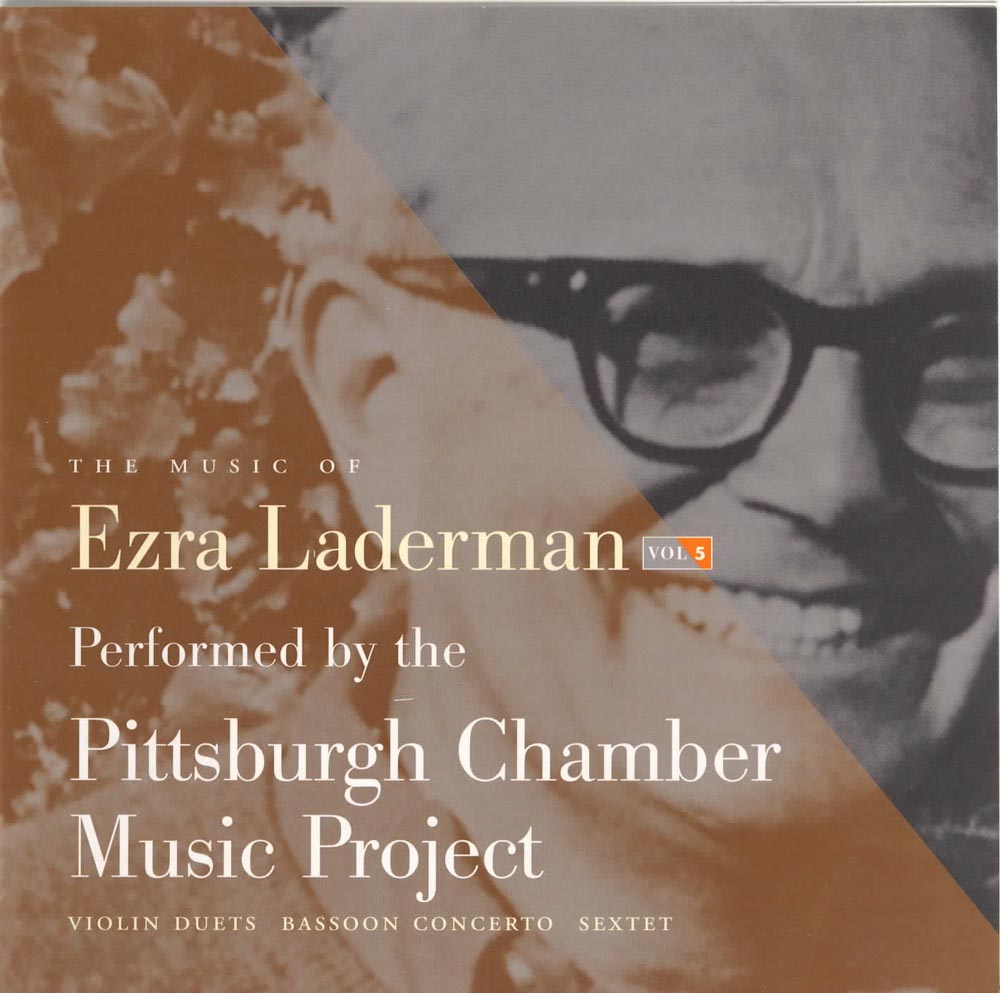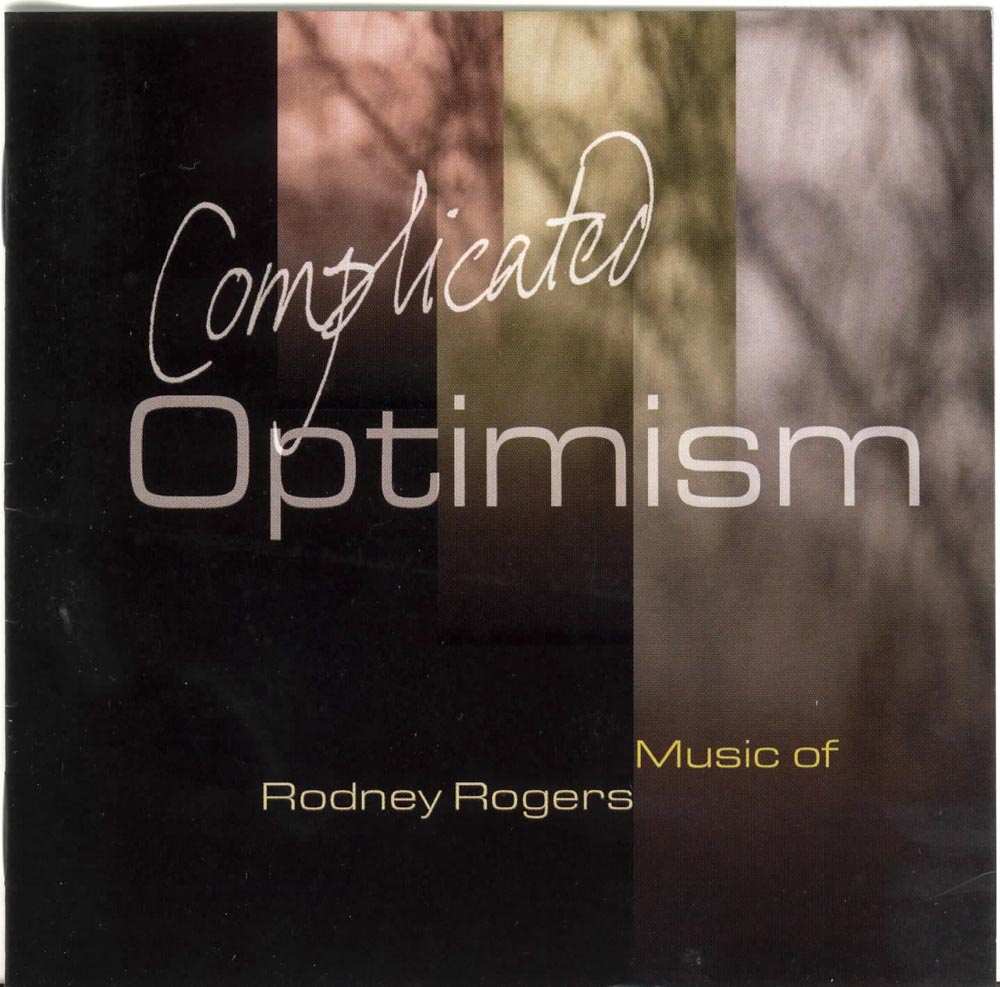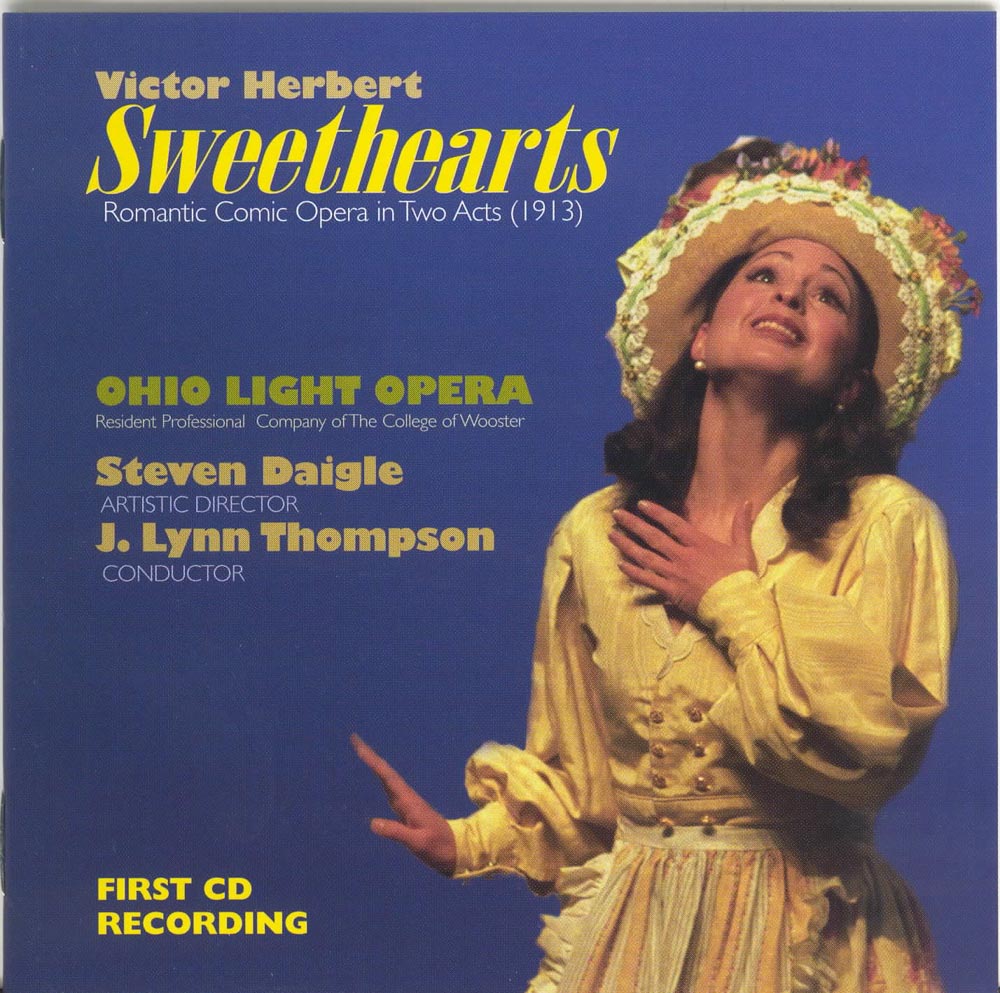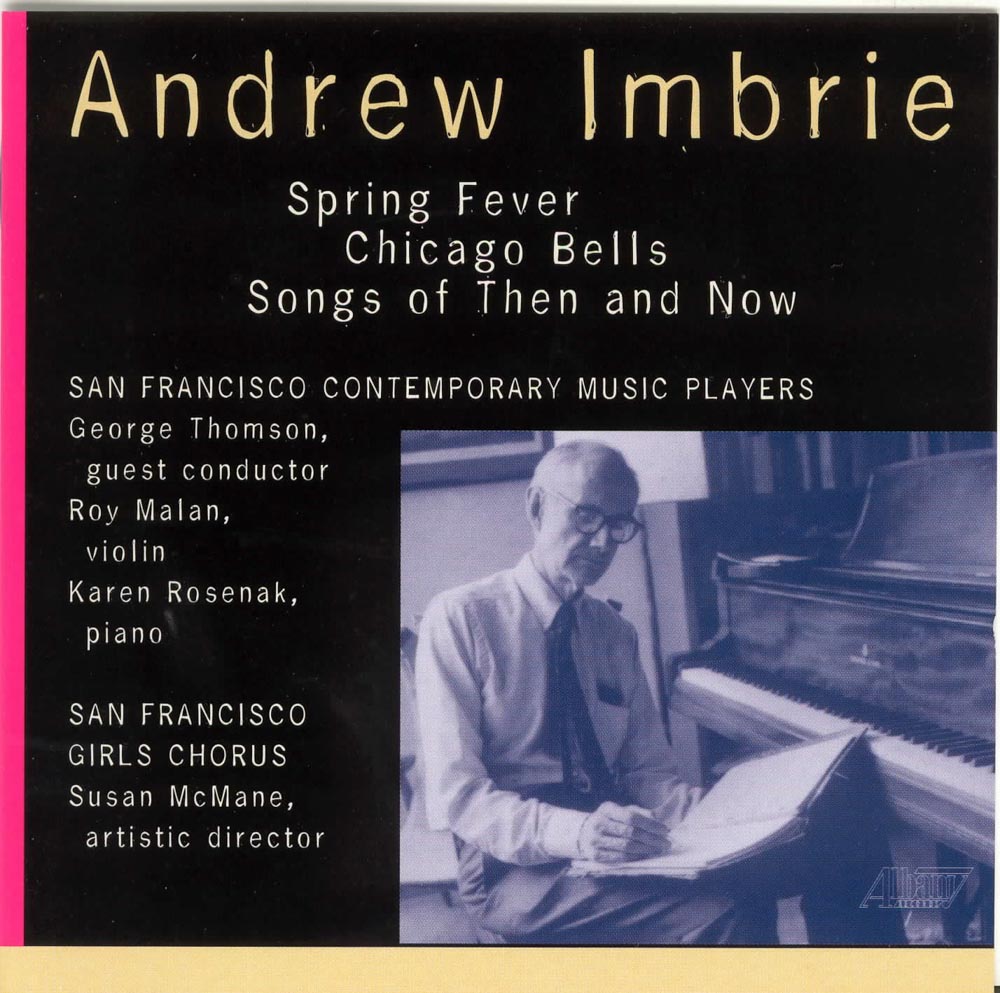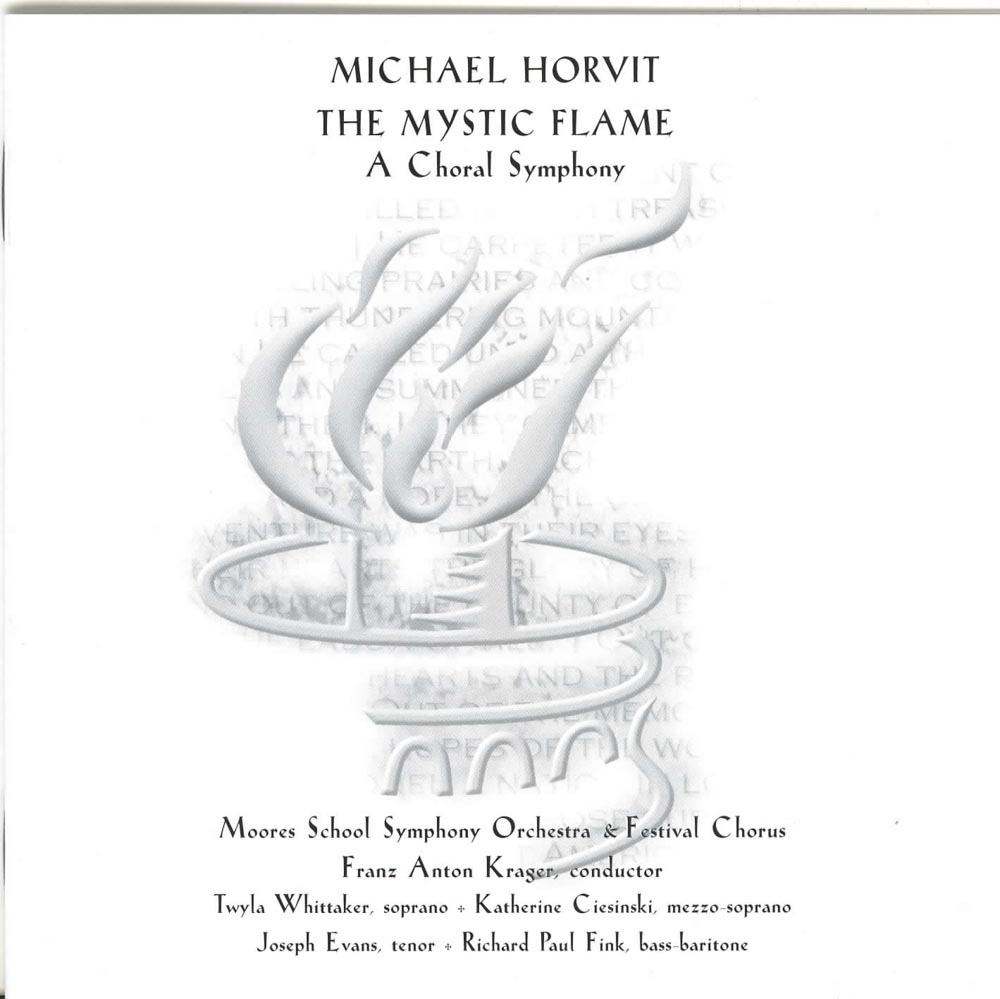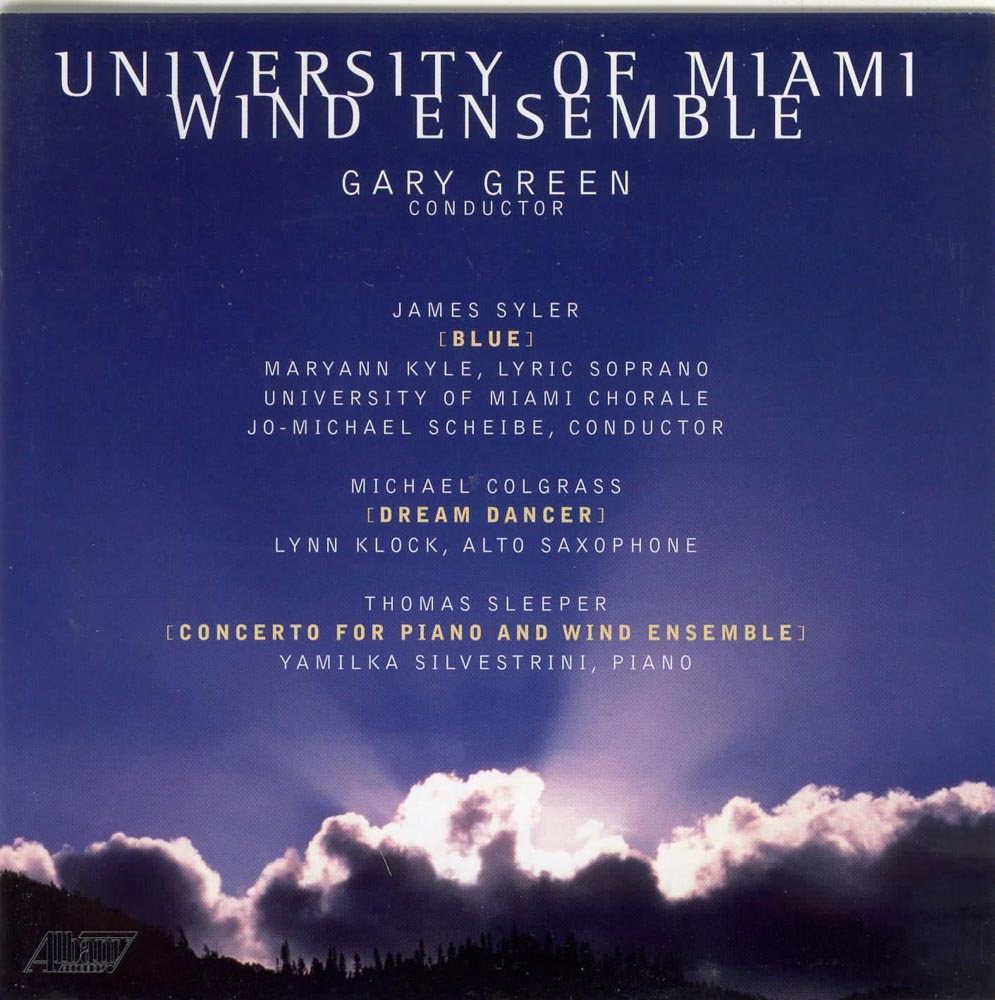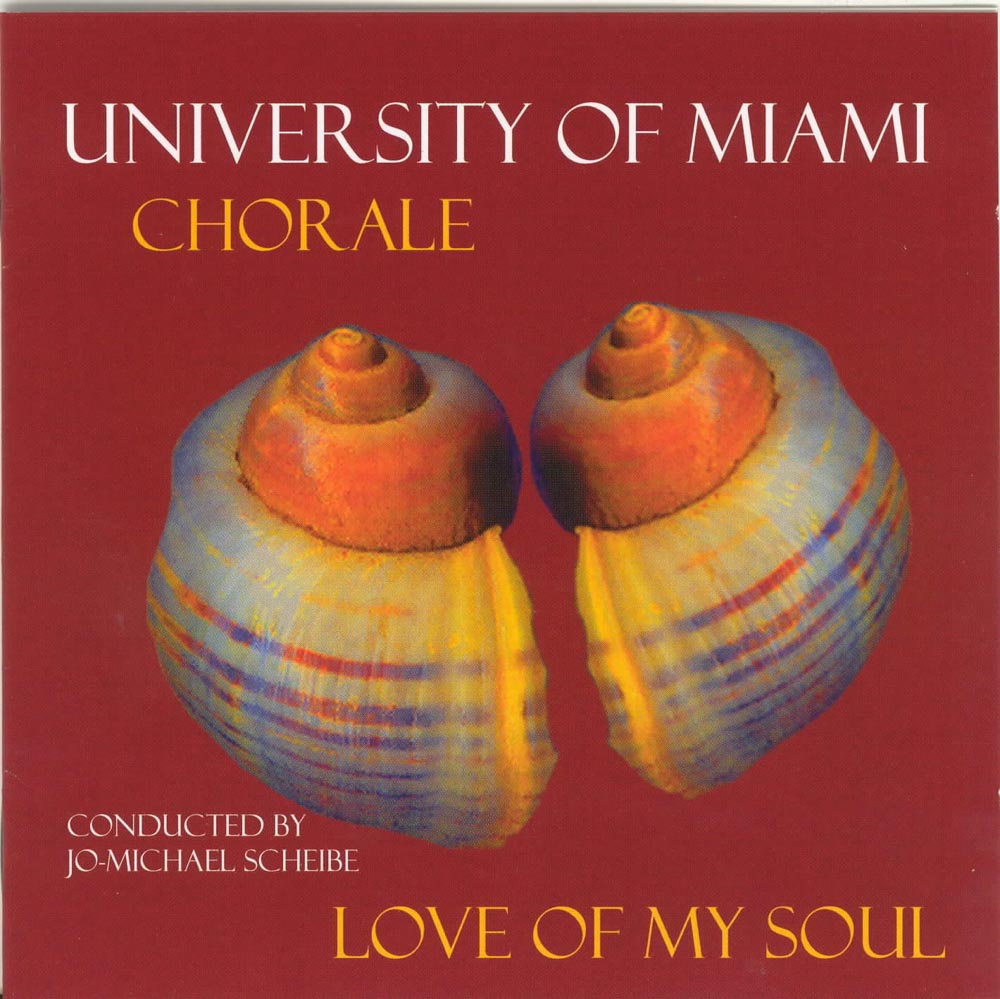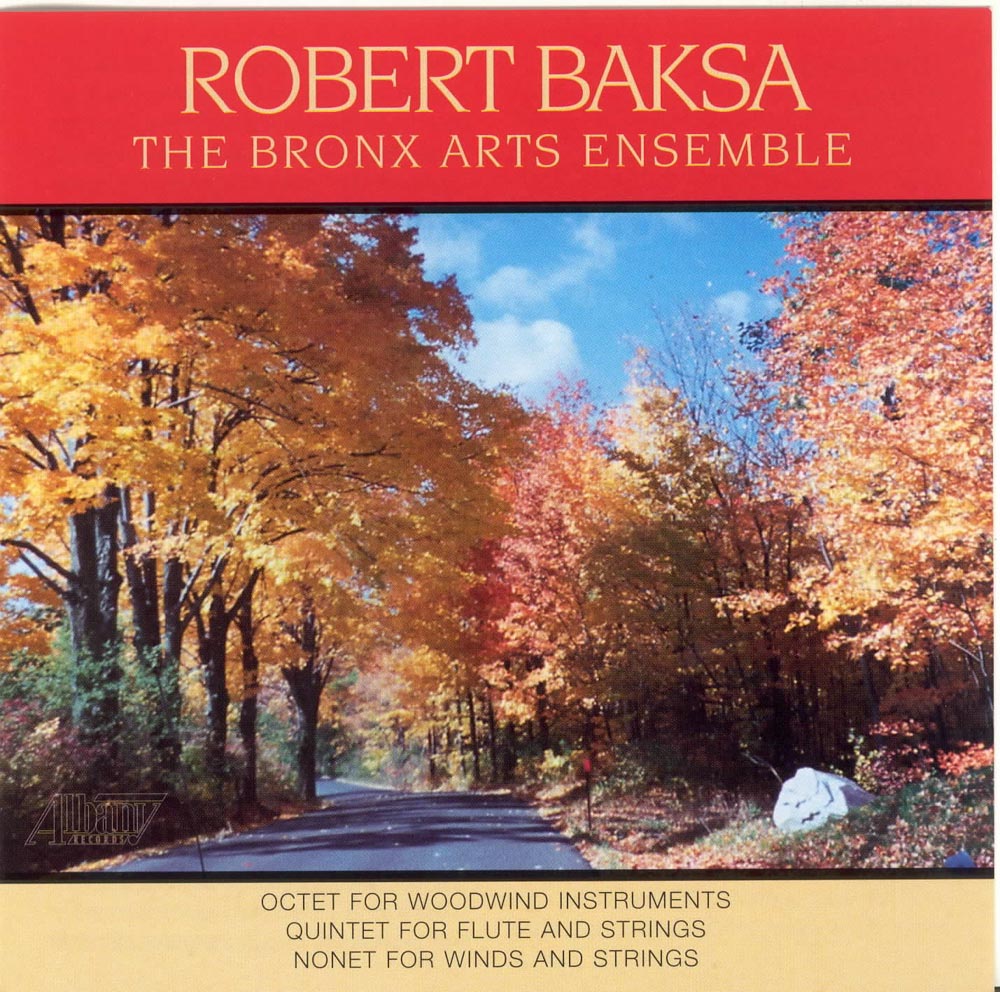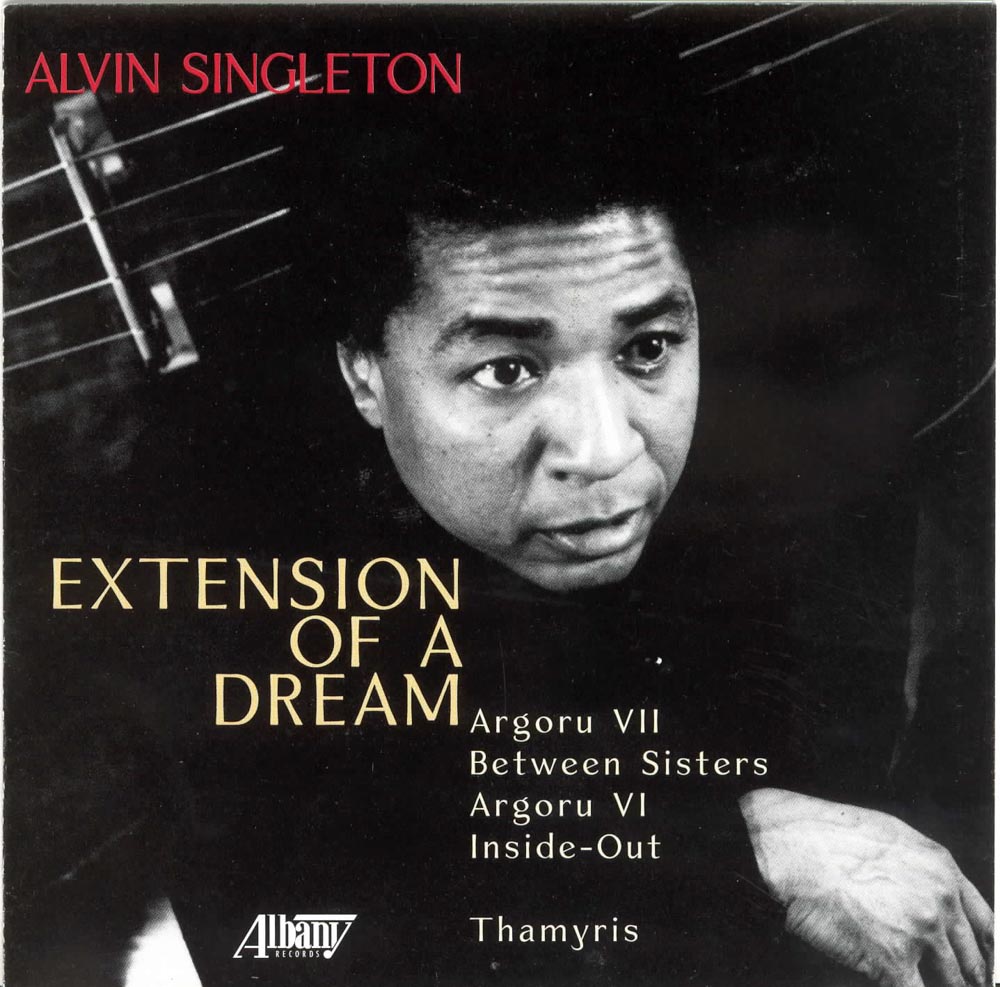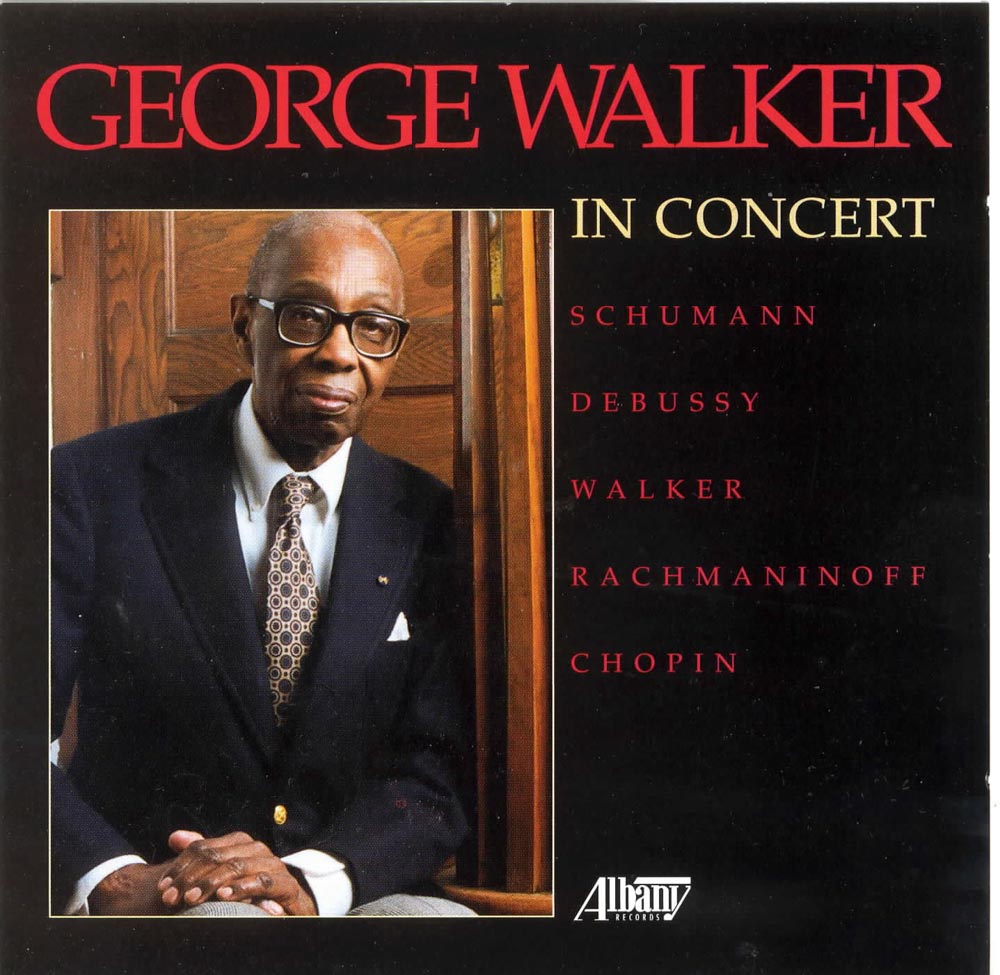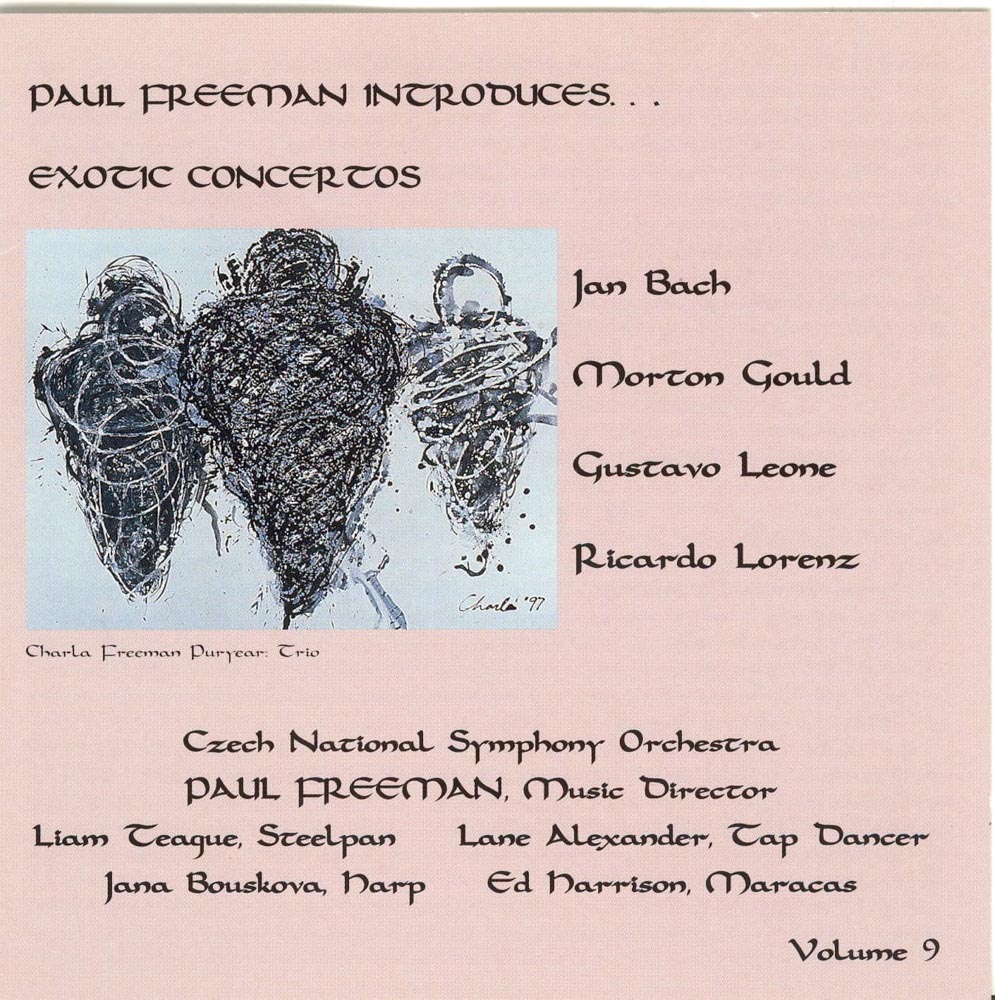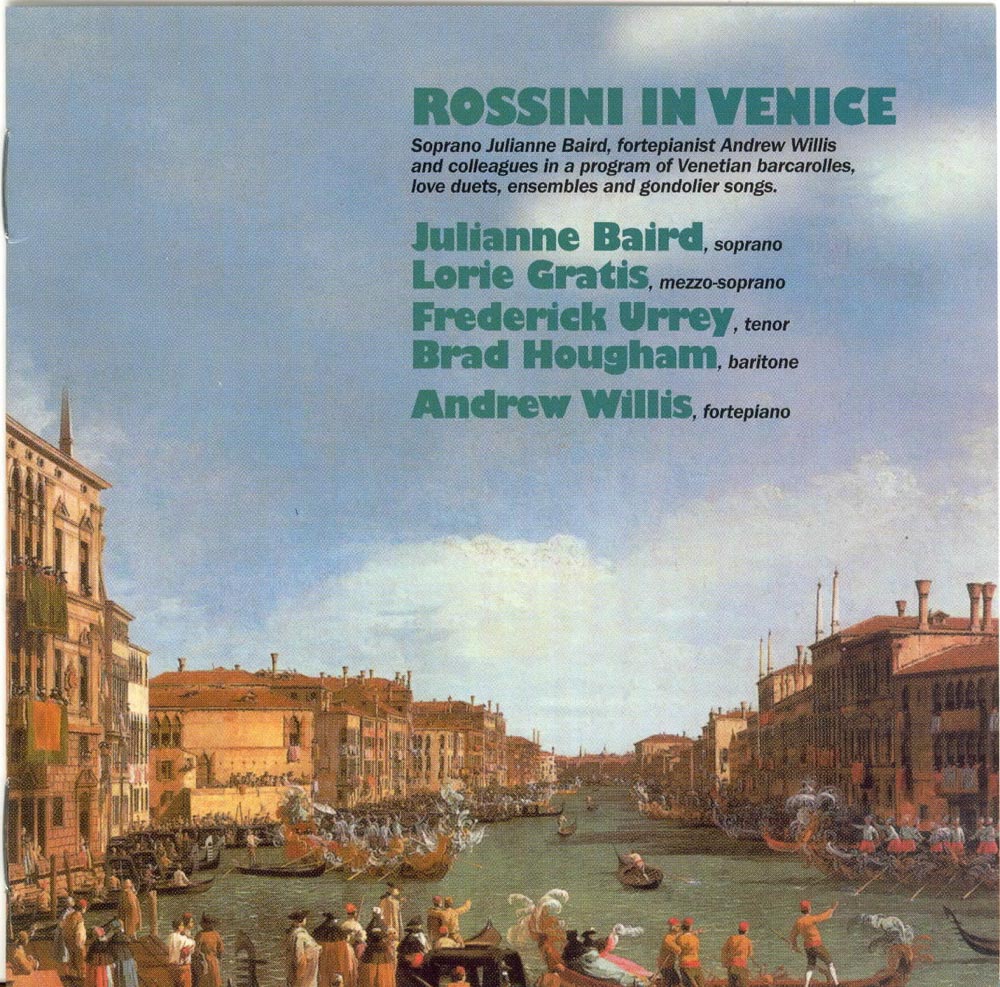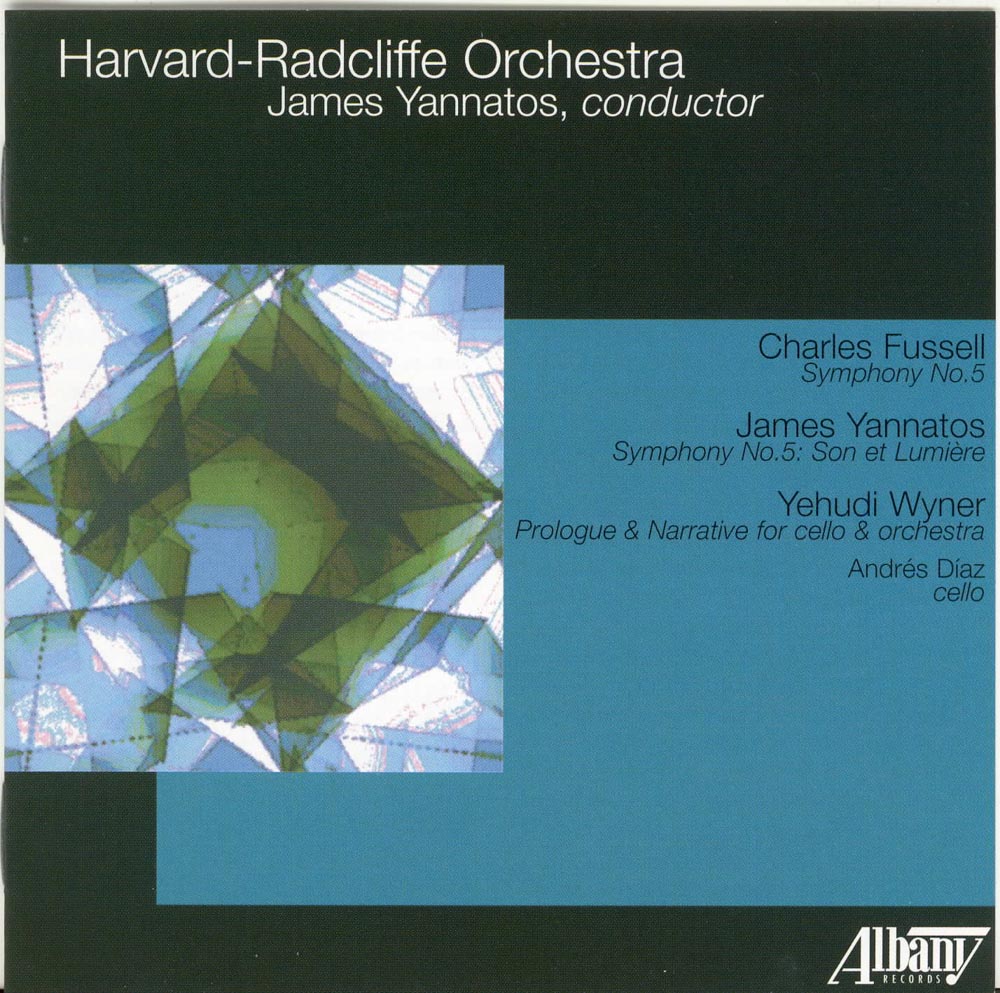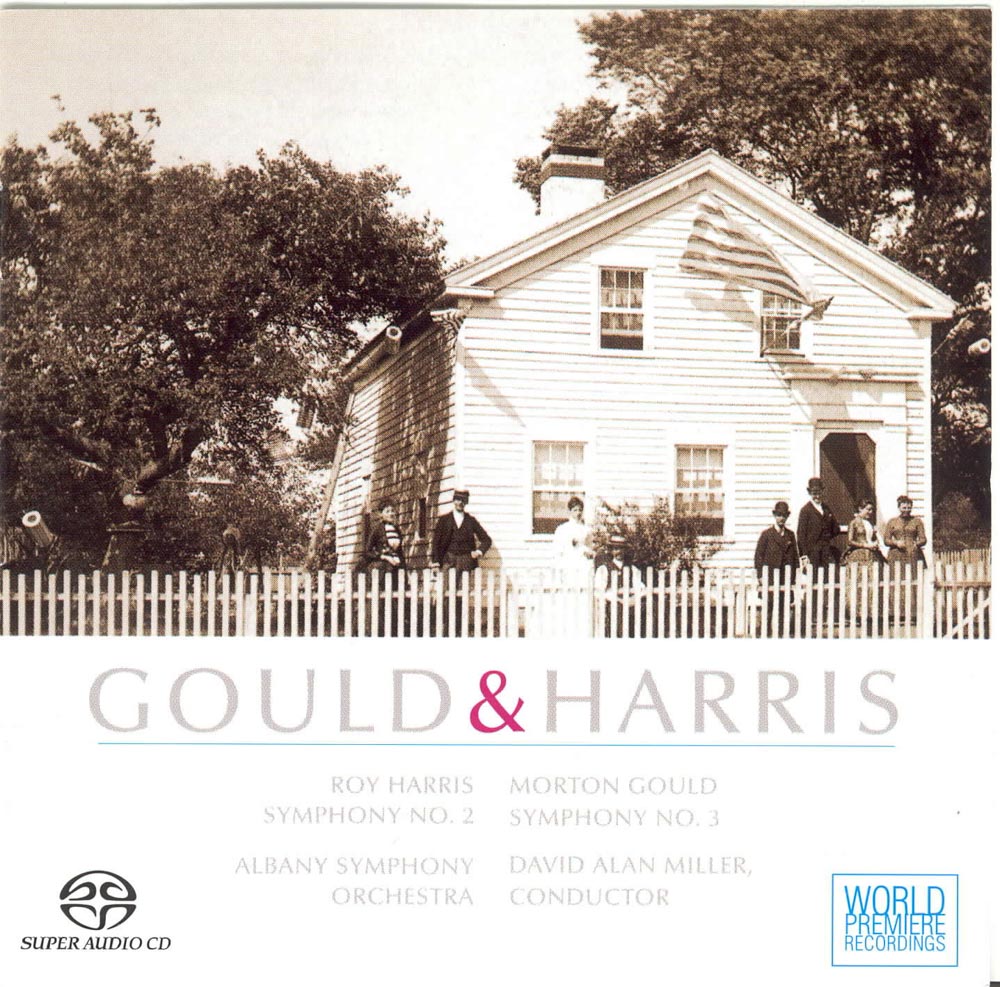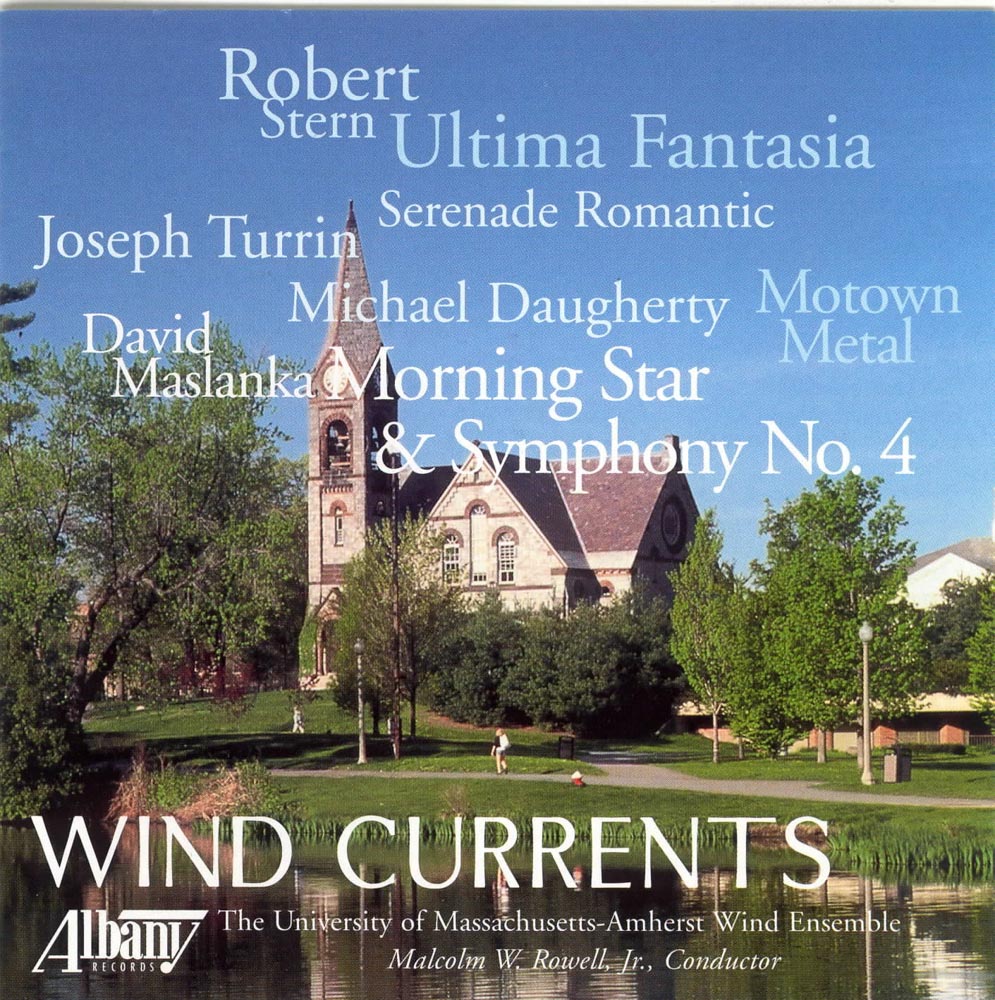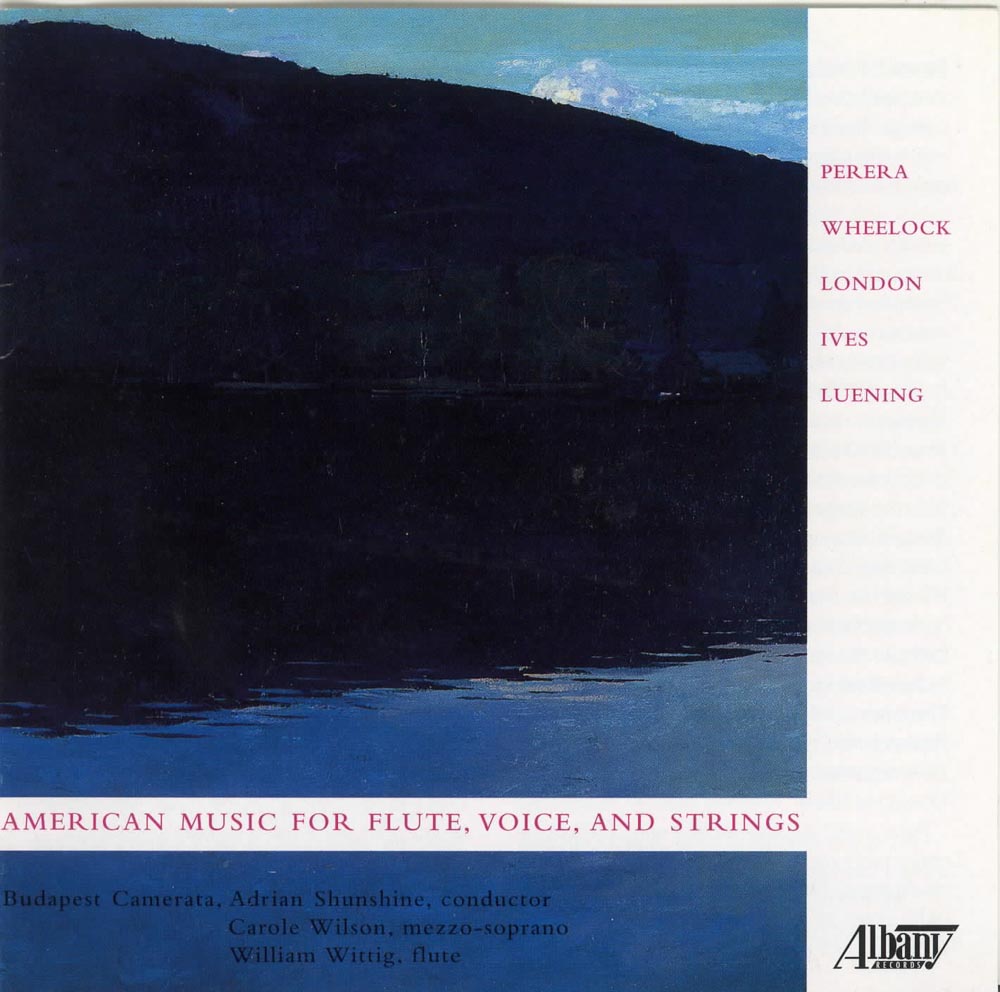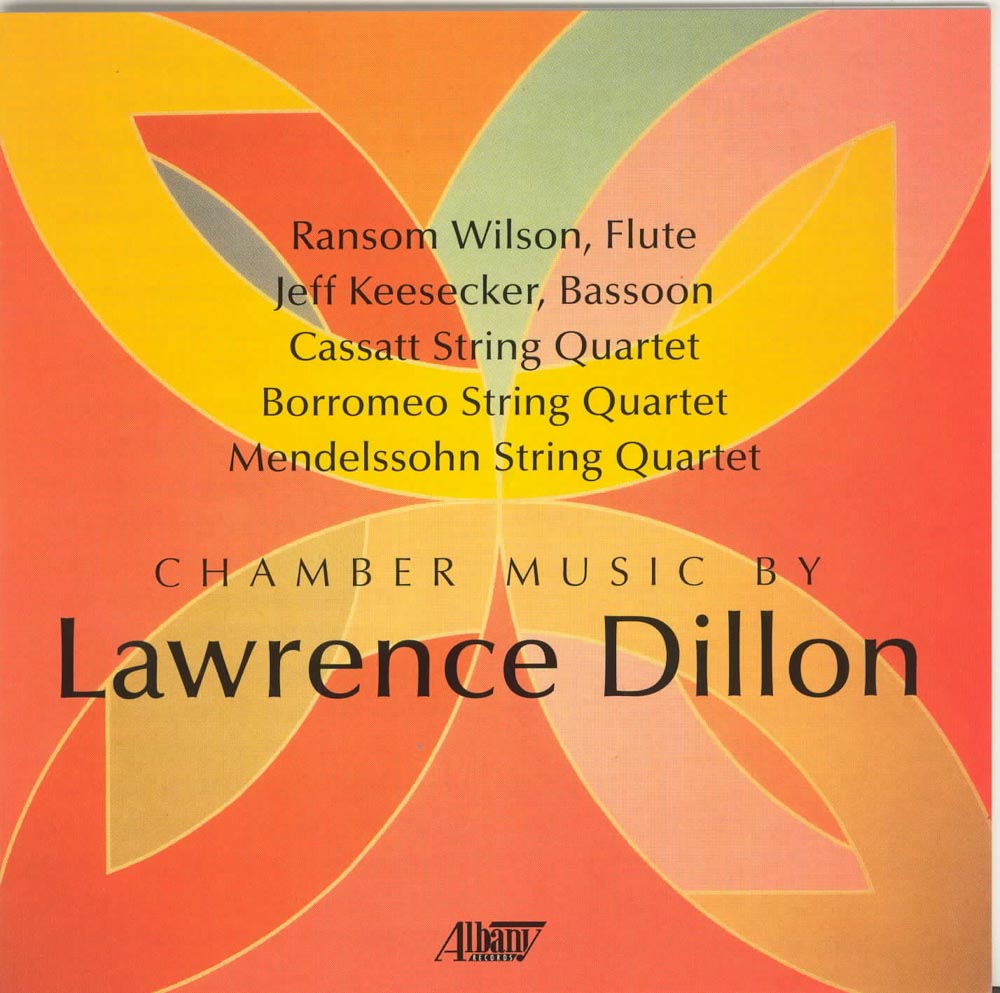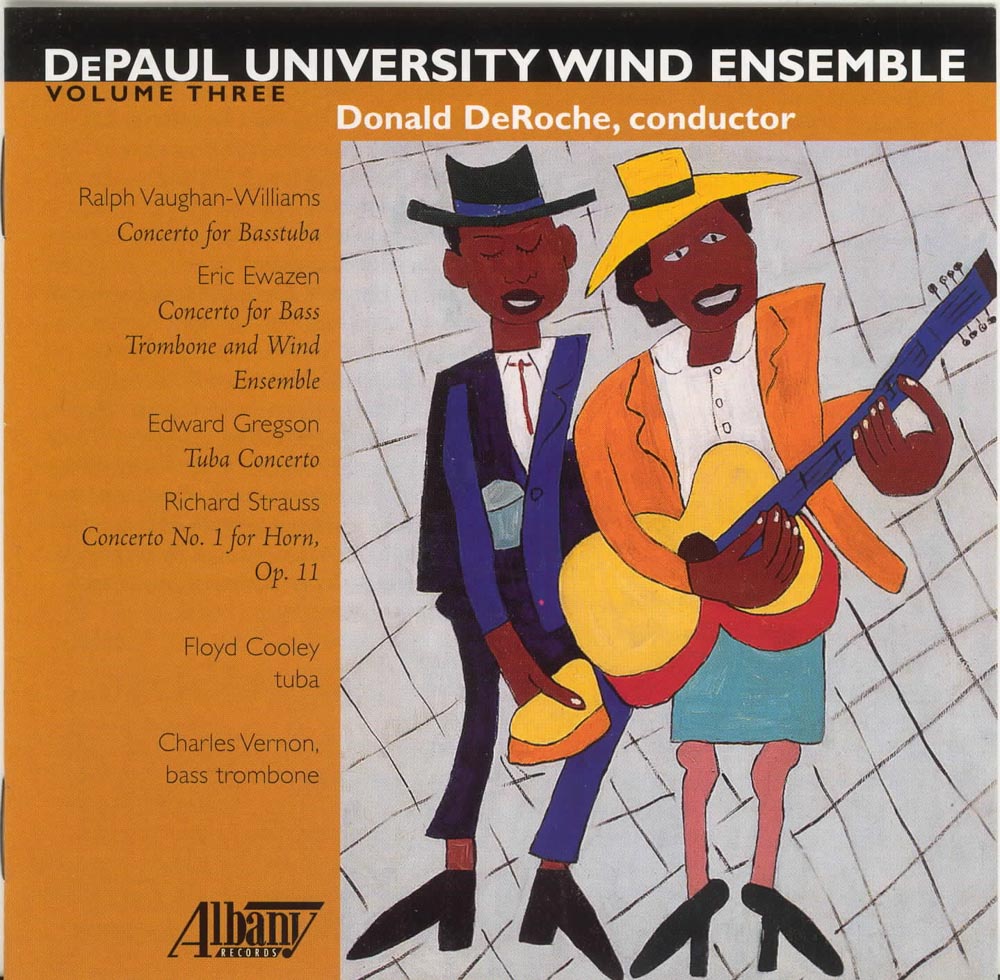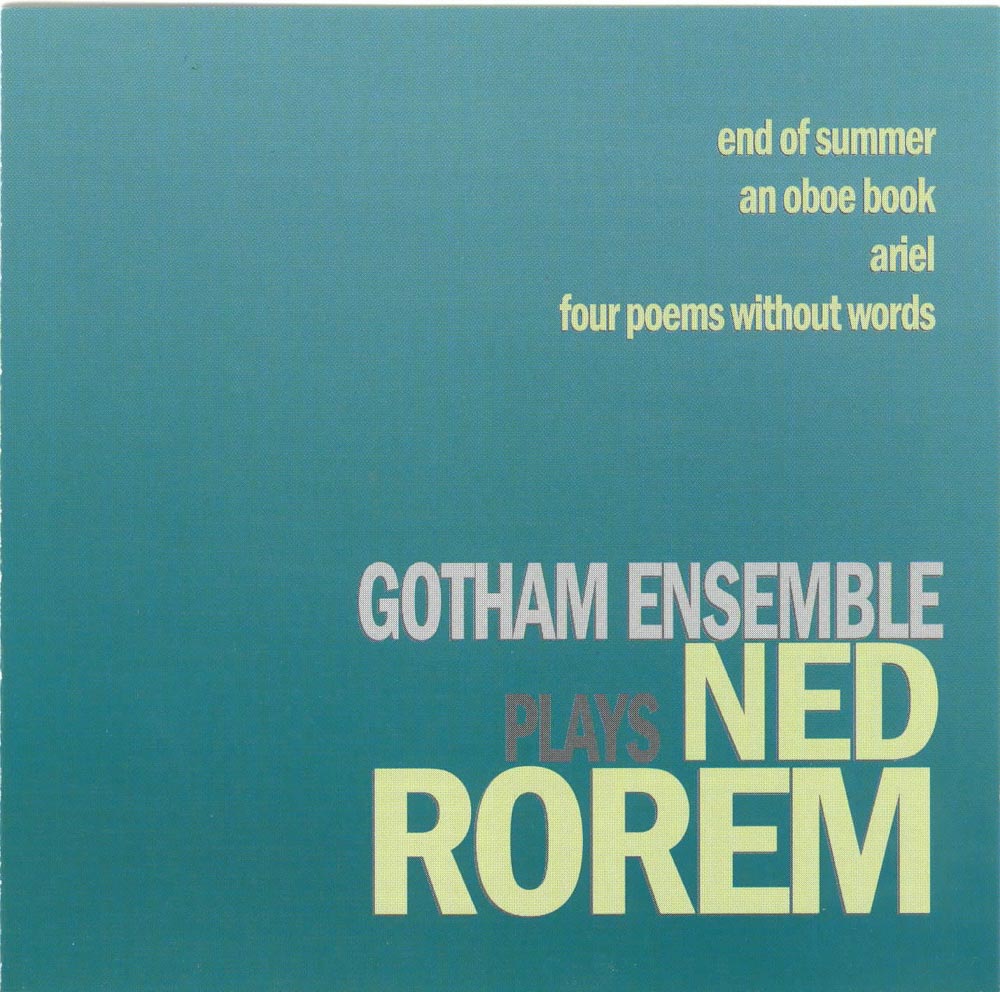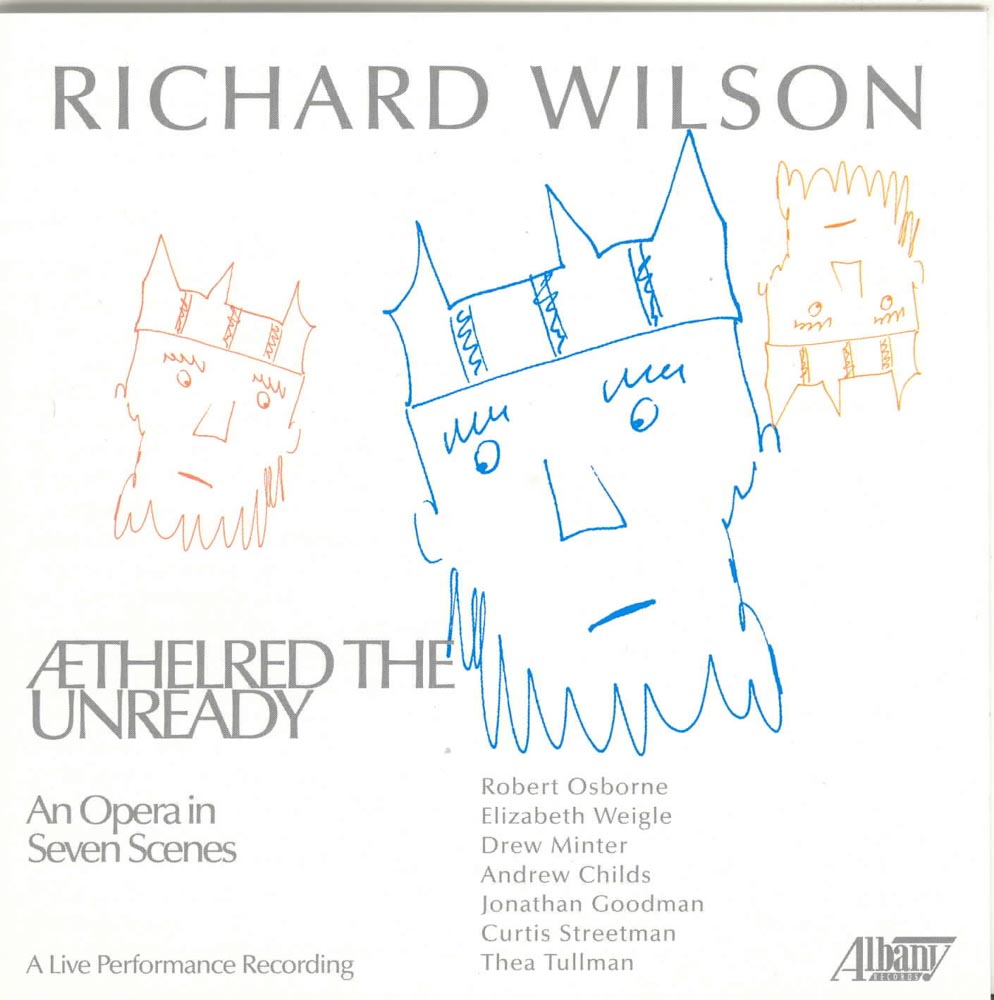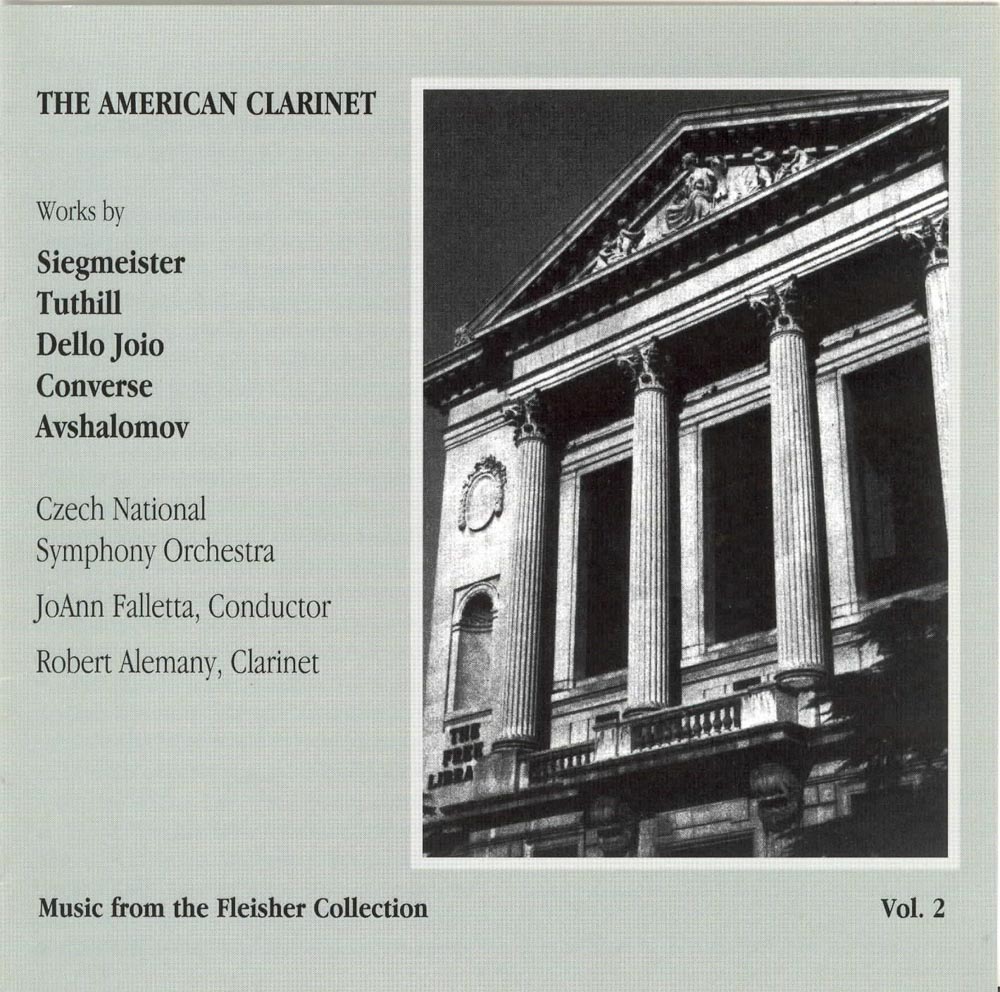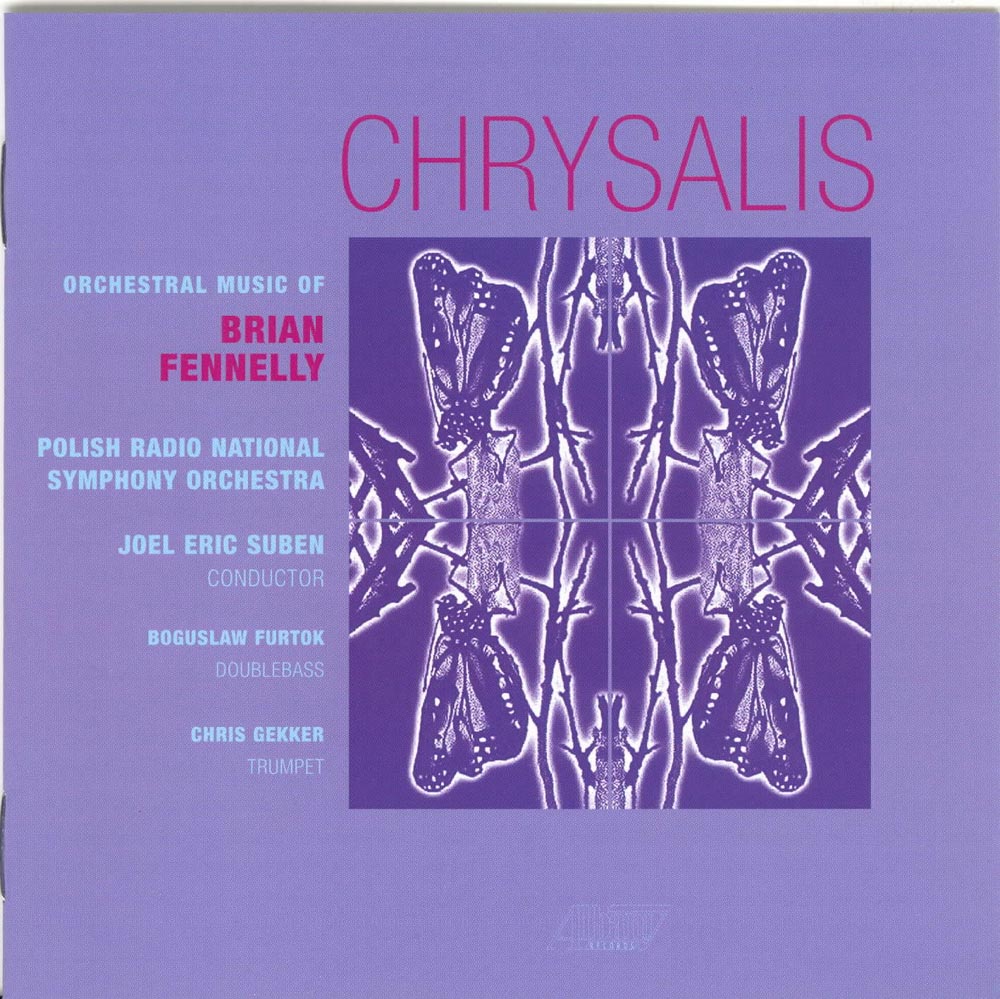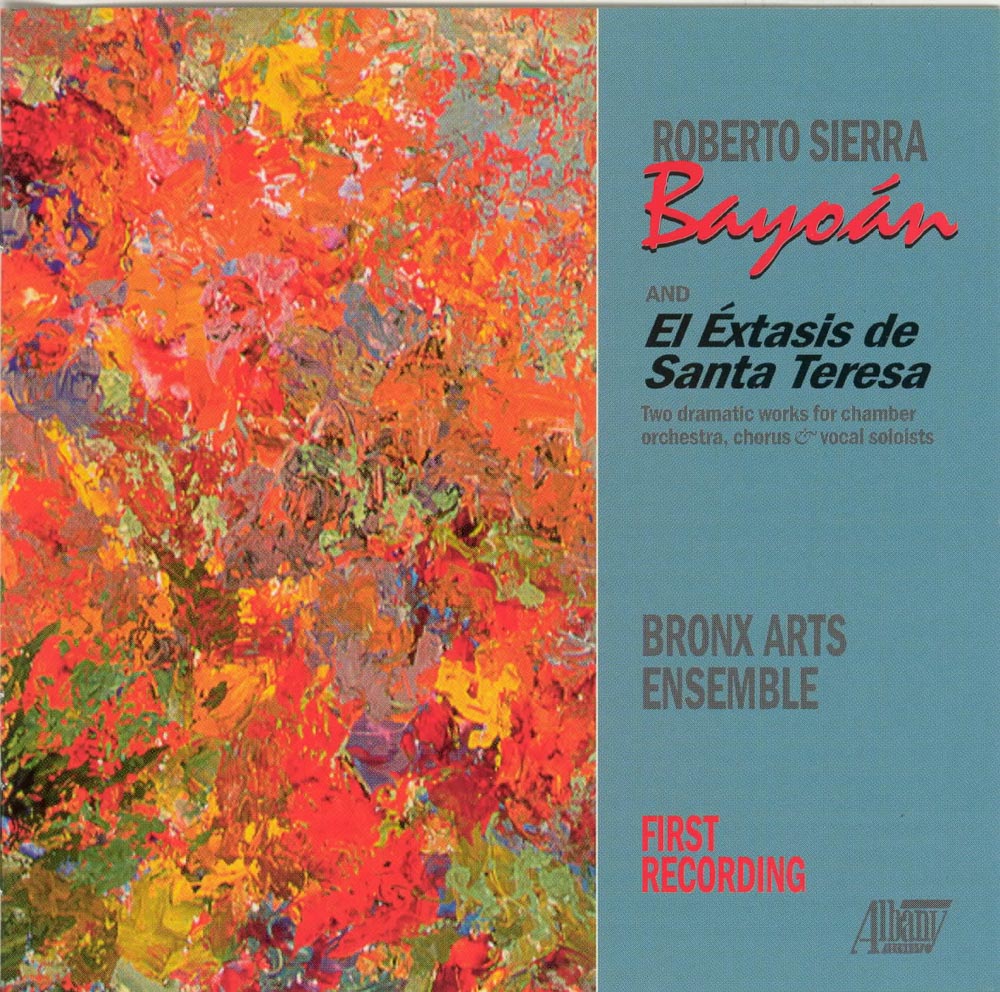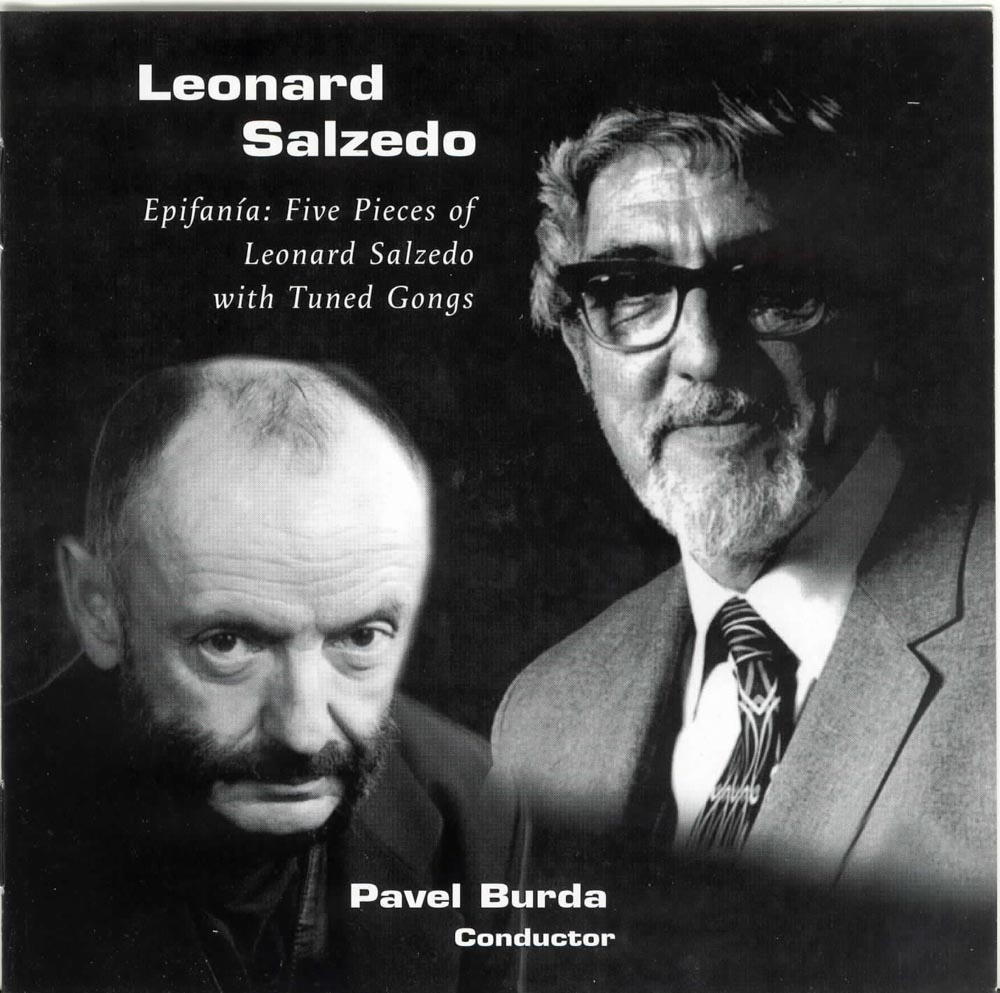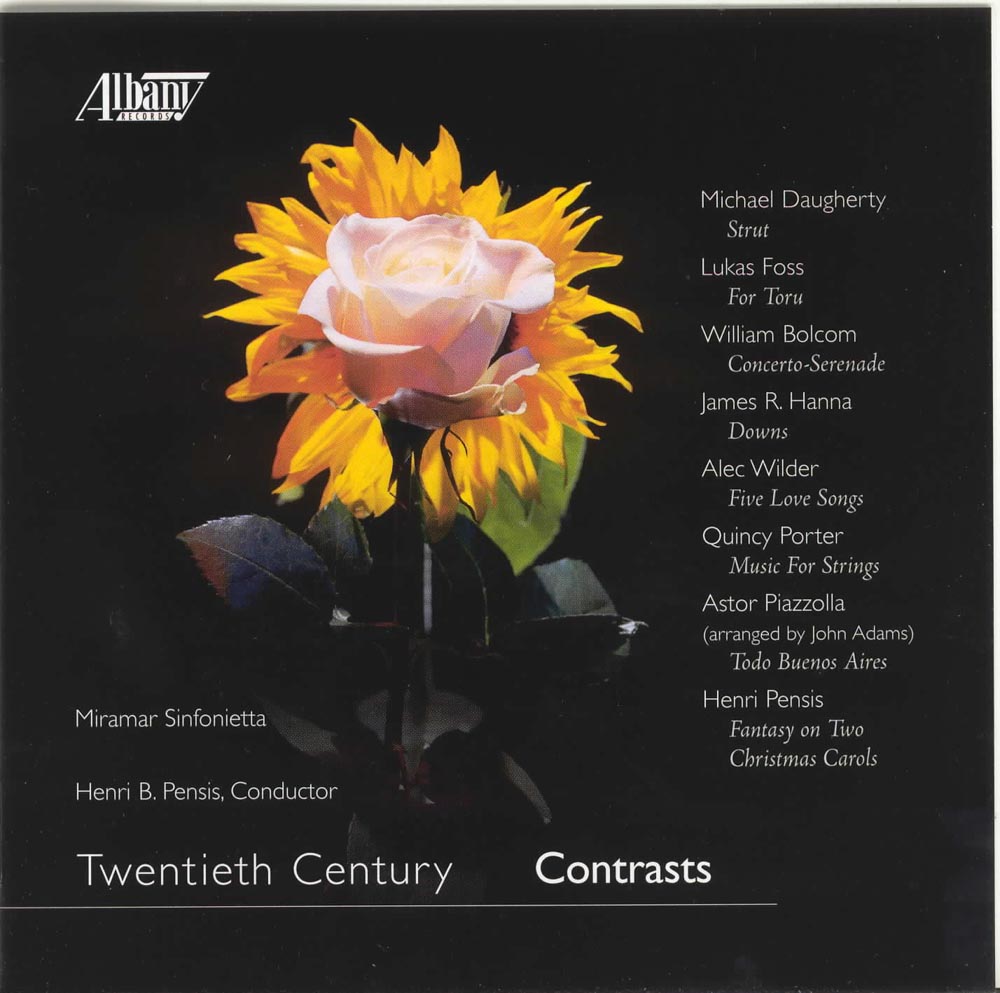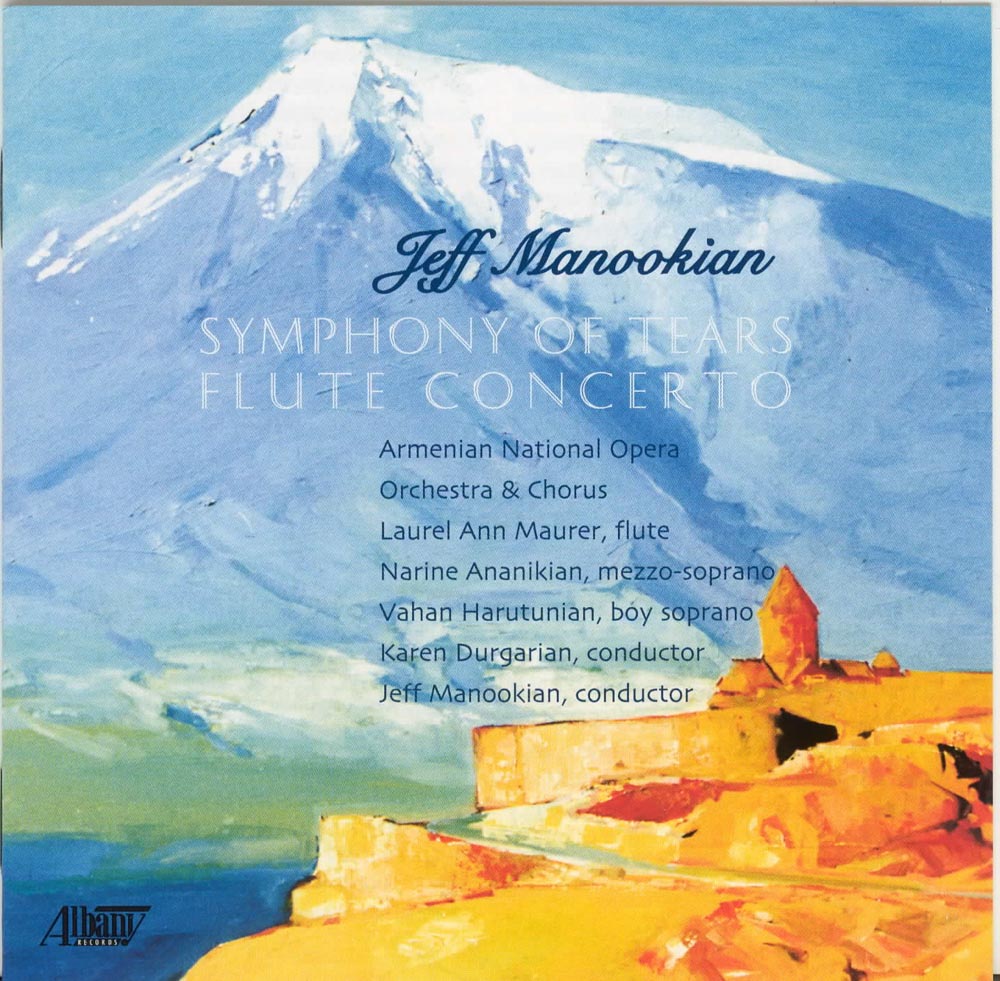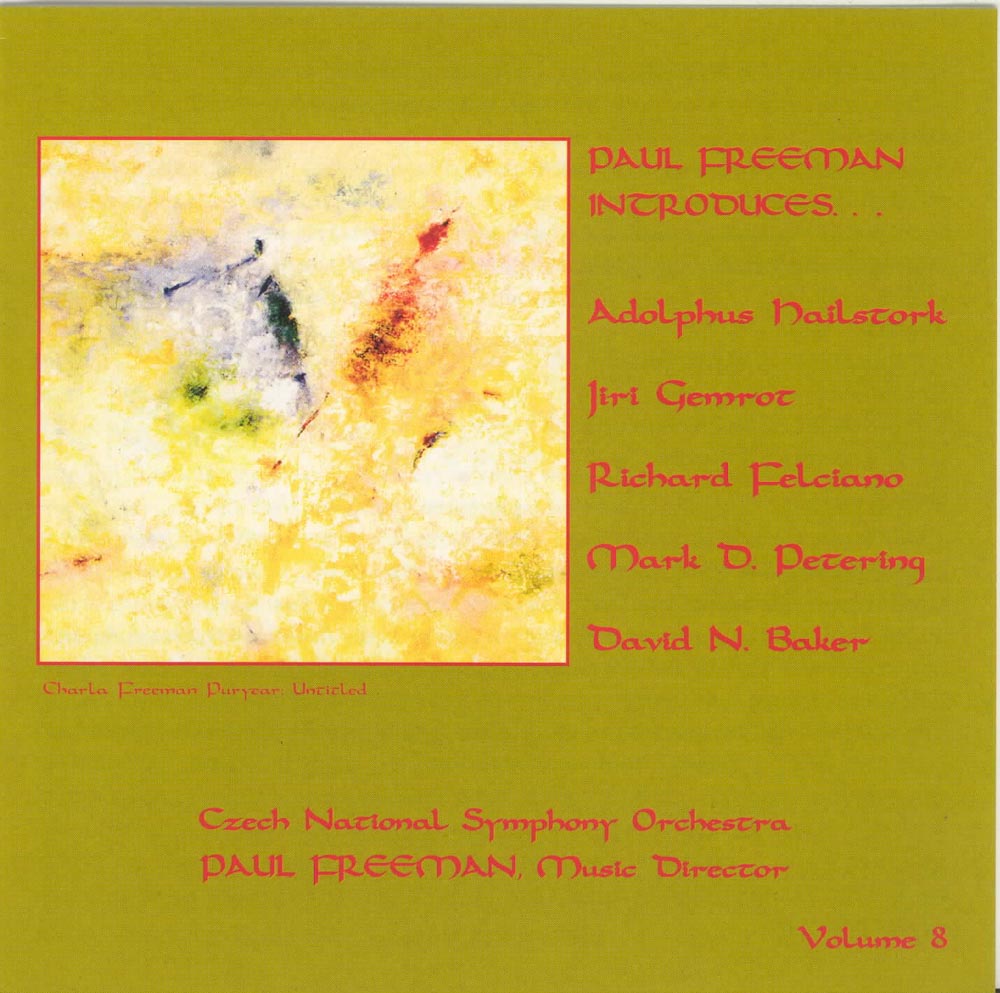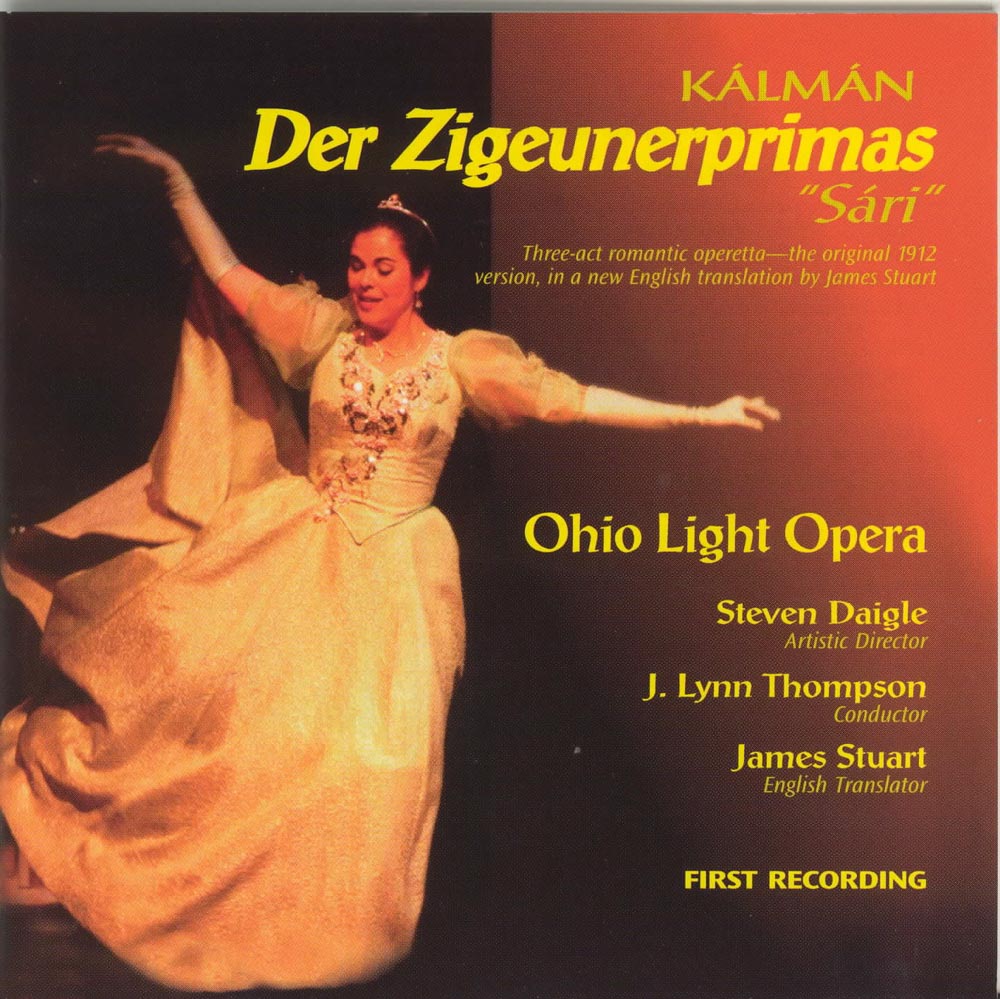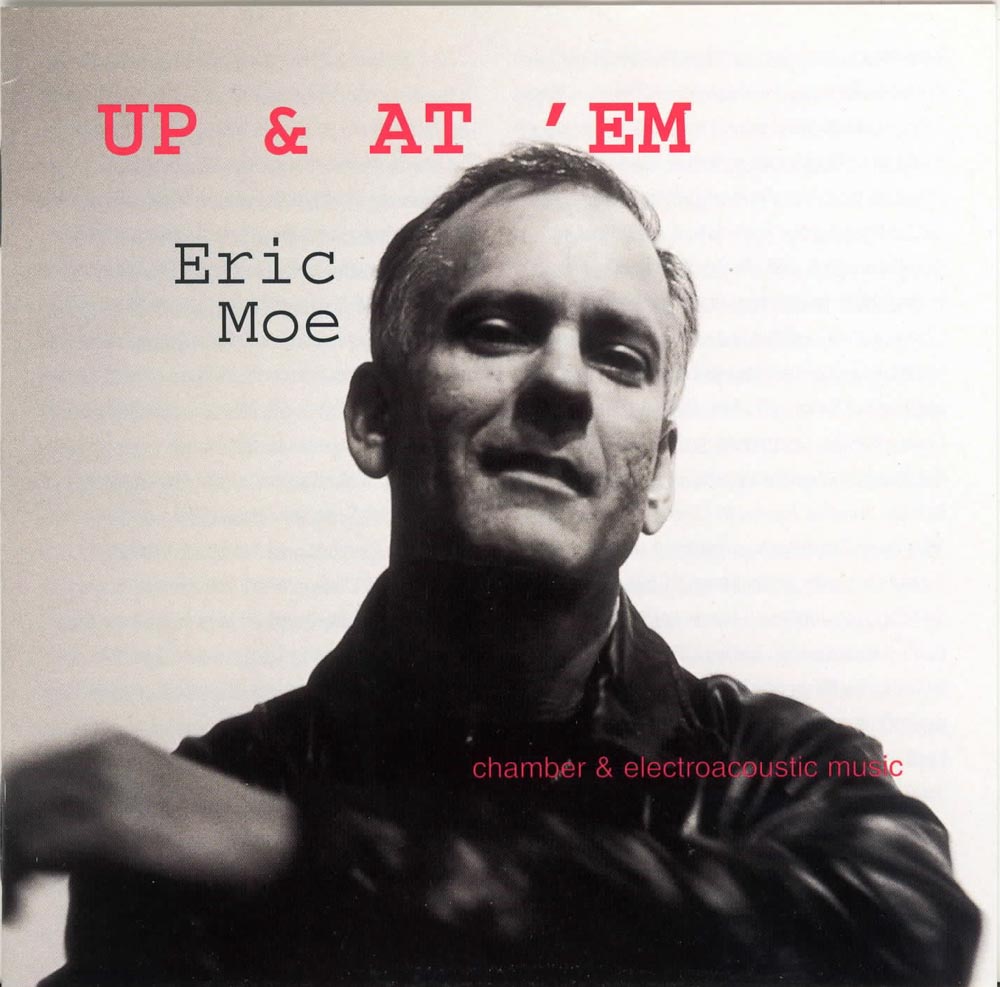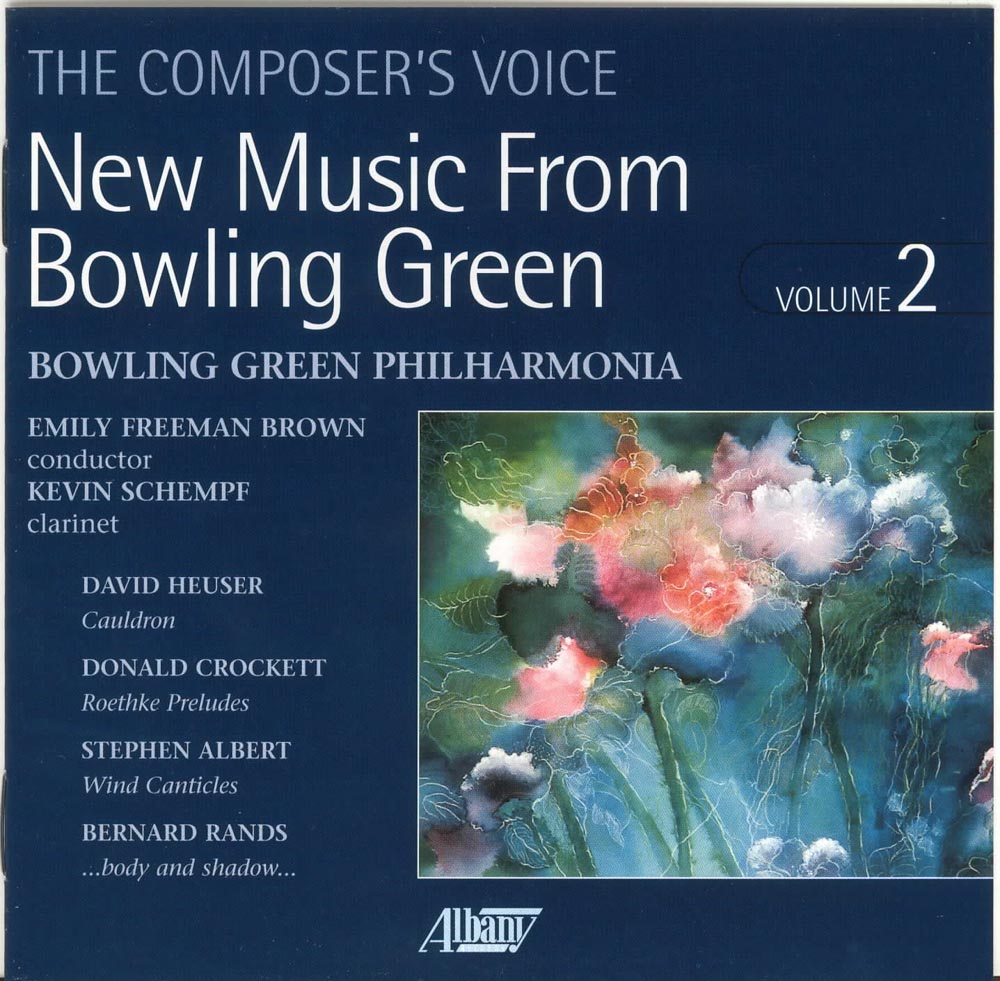Catalog #: TROY0537
Release Date: November 1, 2002ChamberFor five decades Ezra Laderman has been privileged to be performed by the musicians of Pittsburgh. The Pittsburgh Symphony has collaborated with him a number of times; in 2003 the orchestra will feature its bass clarinetist, Richard Page, in a new Laderman concerto that it has commissioned. Other of the city's ensembles over the years have been equally staunch supporters of the composer's work. The newest of them, The Pittsburgh Chamber Music Project, commissioned and premiered Laderman's 1997 Sextet for English horn, bass clarinet and string quartet. Laderman is an attentive collaborator. He gets to know the musicians as people, and in composing his works often chooses the performer's personalities as a point of departure. Certainly he has done so in a number of his string quartets, a genre for which he is deservedly celebrated. The composer's Violin Duets were composed in 1998. Like the works by Bartok and Berio, they are miniature meditations, each composed in a single session, a day, a few hours, that performed together accumulate artistic weight through comparison and contrast. A year after graduating from Columbia University in 1952, Laderman began work on a Concerto for Bassoon and Strings. He completed the concerto in 1954, and it was given a reading by Bernard Garfield (who, later, for many years, was the principal bassoonist of the Philadelphia Orchestra) and the National Symphony under Leon Barzin. But, aside from a student performance at Juilliard, the work remained on the shelf for more than forty years. Laderman completely overhauled the work in 2000 and the result is what is recorded here.
Catalog #: TROY0536
Release Date: November 1, 2002ChamberRodney Rogers has written music for a wide variety of media, including orchestra, chorus, wind ensemble and chamber groups. He first gained national recognition as a composer while in college with BMI Awards, the ASCAP Foundation Grant for Young Composers and a fellowship to Tanglewood. Named "Distinguished Composer of the Year" in 1989 by the Music Teachers National Association for his composition Riffing in Tandem, he has also received a NEA Consortium Commission and residencies at the MacDowell Colony and Yadoo Artist Colony. Today, he is on the composition faculty at Arizona State University in Tempe, Arizona.
Catalog #: TROY0546-47
Release Date: October 1, 2002OperaVictor Herbert conducted the first performance of his delightful two-act operetta Sweethearts in Baltimore, after which the show was overhauled and shortened before spending five weeks in Philadelphia and another five in Boston. Anticipation of the New York premiere of the work (on September 8, 1913 at the New Amsterdam Theater) was heightened by advertisements proclaiming that Christine MacDonald (whose name was printed in larger type than Herbert's) would be the star.
Catalog #: TROY0538
Release Date: October 1, 2002ChoralAndrew Imbrie has enriched the American contemporary music scene for over five decades. This recording pays tribute to his legacy with performances of three compositions from the late 1990s. His fluency at the keyboard springs from his early training in piano with such teachers as Leo Ornstein, Olga Samaroff, Rosalyn Tureck and Robert Casadesus. These teachers (and a summer studying with Nadia Boulanger) nurtured his interest in theory and composition, but it was during his undergraduate years at Princeton that he found his most significant musical mentor, Roger Sessions. Imbrie's senior thesis, String Quartet # 1 (1942), won a New York Music Critics' Award in 1944 and was recorded by the famed Juilliard String Quartet. After military service during World War II, Imbrie followed Sessions to the University of California,. Berkeley and received his master's degree there. Upon graduation, Imbrie was offered a faculty position at Berkeley that he held until his retirement in 1991. For over four decades, Imbrie has served as a teacher and mentor for composers ranging across the stylistic spectrum from experimentalist Larry Austin to the mischievously "traditionalist" David Del Tredici. He has held visiting professorships at the University of Chicago, Northwestern University, New York University, and Harvard. About Spring Fever the composer writes: "This work was begun in Berkeley but completed in Chicago on November 26, 1996. Its title reflects, perhaps, my sense of the onset of winter in that city, and my yearning for spring, with its varying excitements and instabilities." Chicago Bells was commissioned by the McKim Fund in the Library of Congress. It was premiered there in May 2001, by the soloists heard on this disc. "This work was composed in 1997, while I was serving as guest professor at the University of Chicago. I would walk through the campus on my way to meeting with my students; and as I proceeded through the myriad quadrangles I would occasionally hear the sound of bells in the towers, echoing and clanging. This sound was the inspiration for the opening of the work and influenced it in various ways." Songs of Then and Now, settings of poetry by Robert Louis Stevenson, William Shakespeare, and e. e. cummings, explore the ebullience, disillusionment, love, and magic of growing up. "The title of this group of songs can have two meanings: one that draws attention to the variety of texts used; the other referring to the ages of the singers, who have just crossed the threshold and are now young adults. Then refers to vivid memories of recent childhood; now suggests a wide-open world of discovery."
Catalog #: TROY0533
Release Date: October 1, 2002ChoralMichael Horvit is Professor of Composition and Theory at the University of Houston Moores School of Music. For 25 years he served as music director at Congregation Emanu El, Houston, Texas. During his studies at Yale University, Tanglewood, Harvard University and Boston University, where he received his DMA degree, Dr. Horvit's composition teachers were Aaron Copland, Lukas Foss, Walter Piston, Quincy Porter and Gardner Read. In turn, Horvit has taught two generations of music students at the University of Houston. Commissioned by Congregation Emanu El, The Mystic Flame chronicles in words and music the Jewish experience in the 20th century. Texts are drawn from many sources: poets, novelists, historians, ministers, rabbis, major actors upon the world stage and ordinary people. This vast canvas of words and music, arranged in three large sections, mirrors the historical shape of the 20th century. Here we have the chronicle of one people, the Jewish people, in their struggle to be free from persecution, subjugation and bigotry. It is, however, symbolic of the struggle of all the diverse immigrants who came to our great nation. They came, and still come, to find freedom from oppression, be it religious, economic or political. They come "yearning to breathe free."
Catalog #: TROY0525
Release Date: October 1, 2002Wind EnsembleThomas Sleeper is the conductor of the University of Miami Symphony Orchestra. He composed his Concerto for Piano and Wind Ensemble in 1986. It was premiered in April, 1987. The three movement work, while not programmatic, attempts to capture the general essence of three characters from Goethe's Faust. The Concerto was revised in 1997 and this is the second performance of that revision. Michael Colgrass' first musical experiences were as a jazz drummer in the Chicago area (1944-49). In 1954 he graduated from the University of Illinois in music performance and composition. His teachers included Darius Milhaud and Lukas Foss. Of Dream Dancer, Mr. Colgrass writes: "The musical cultures of the world are opening up as never before. Dream Dancer is a fantasy about a musical instrument that feels attracted to various styles of music, trying to decide which one to play. I like to think of Dream Dancer as a kind of musical play with the soloist and the other instruments being actors who respond to each other dramatically." James Syler was raised in New York and Florida and educated at Northern Illinois University, the University of Miami and the University of Texas at Austin. He is primarily a self-taught composer with brief studies with Alfred Reed, Karl Korte and Michael Colgrass. He writes: "For many years I've wanted to write a large work that would combine my musical and literary interest. So much of 20th century fiction presents despairing characters who find their resolution in some form of self-destruction. In writing the text for this work I wanted to create a narrative that would resolve despair in a different way. This free verse lyrical narrative, titled Blue, is in the broadest sense about the loss of love and the process of reconnecting with love."
Catalog #: TROY0542
Release Date: September 1, 2002ChoralThis unusual, beautifully sung recording by the University of Miami Chorale is their second release on Albany Records. The Chorale was founded in 1993 and has established itself as one of the nation's leading collegiate choral ensembles. Noted for its innovative and versatile programming, the Chorale prides itself in singing literature of the Twentieth Century. Jo-Michael Scheibe is a Professor and Program Director of Choral Studies at the University of Miami. He is widely recognized for his work with contemporary choral literature, new music commissions and young composers. Five Hebrew Love Songs by Eric Whitacre was commissioned for the Chorale. The other grouping to note on this recording is an eclectic missa brevis, put together from masses by William Byrd and Frank Martin.
Catalog #: TROY0534
Release Date: September 1, 2002ChamberRobert Baksa is one of America's most prolific composers with more than 500 works to his credit. He was born in New York City in 1938 but grew up in Tucson, Arizona. Baksa attended the University of Arizona, then returned to New York to live after spending a summer at Tanglewood. Currently he serves as Resident Composer and Coordinator of New Music for the Pleshakov Music Center in Hudson, New York. The Octet for Woodwinds was completed in 1972 and takes its inspiration from the wind serenades of the early classical period. The Quintet for Flute and Strings, written in 1973, was premiered at the National Flute Association Convention. The 1974 Nonet for Winds and Strings was commissioned by the Chamber Music Conference of the East at Bennington, Vermont. It was written to be presented during the period of the composer's tenure as Composer-in-Residence that summer and was later taken up by other chamber ensembles across the country including the Bronx Arts Ensemble, which has premiered and recorded more than a dozen of Baksa's chamber works.
Catalog #: TROY0527
Release Date: September 1, 2002ChamberAmong composers of so-called serious music over the last 50 years, few have realized the term "serious" as uniquely and powerfully as has Alvin Singleton. With many contemporary composers the seriousness of their work has been concerned with musical structure; Singleton throughout his career has answered the call of allowing his music to address crucial matters of his time. But this has always been accomplished through eloquent crafting of his musical materials. Singleton was born in Brooklyn, New York in 1940, the son of warm, witty, devoutly Christian parents. Abandoning a career as a CPA after falling in love with a Mahler symphony, Singleton studied composition at both New York University and Yale before working with Goffredo Petrassi as a Fulbright Scholar in Rome. He remained in Europe for nearly a decade and a half before returning to the U.S. to serve as composer-in-residence with the Atlanta Symphony Orchestra. Extension of a Dream, written in 1977 and revised in 1987, memorializes the brutal beating death of South African freedom fighter Steve Biko by South African police. Argoru is a word from the Ghanaian Twi language meaning "to play" and both works heard on this disc, ArgoruVII and Argoru VI are scored for solo instruments (vibraphone and marimba). Between Sisters (1990) is a musical setting of "The House Slave," a poem by former U.S. Poet Laureate and Pulitzer Prize winner Rita Dove.
Catalog #: TROY0523
Release Date: September 1, 2002InstrumentalAlbany Records continues its series of recordings of George Walker, who has achieved international recognition as a pianist and as a composer. Walker has published more than 80 works for every medium except opera. He was inducted into the American Academy of Arts and Letters in 1996. With his inclusion into the American Classical Music Hall of Fame in 2000, he became the only living pianist-composer to receive this honor. The four piano sonatas, the brilliant and dynamic Piano Concerto and other shorter works that he has composed have expanded the standard repertoire of classical piano literature. Nevertheless, his devotion to the music of the great composers of the past remains undiminished, as evidenced by this superbly played recording.
Catalog #: TROY0521
Release Date: September 1, 2002OrchestralThis recording brings together some wonderful concertos for orchestra and unusual instruments, most of which are first recordings. The solo part of Jan Bach's Steelpan Concerto was actually written for soprano pan, a steel instrument that usually plays the primary part in the Caribbean steel bands. The work was composed in 1994 for Liam Teague, a young musician from Trinidad whose musicianship inspired the work. Morton Gould's Concerto for Tap Dancer and Orchestra, written in 1952, brings together Gould's flare for Americana and his passion for dance. Inspired by the percussive quality of the tap medium, Gould's concerto is typically inventive in mixing musical tradition with modern American culture. Leone's Harp Concerto was commissioned and premiered in 1994 by Concertante di Chicago with Elizabeth Cifani as soloist. Like all his music, it is influenced by the popular music of Latin America where he grew up. Ricardo Lorenz was born in Maracaibo, Venezuela in 1961 and is considered one of the most prominent Venezuelan composers of his generation. Playing the maracas in Venezuela has developed into a highly virtuosic art form that is considered by connoisseurs as one of the world's most sophisticated vernacular percussion techniques. One of these connoisseurs is Chicago's Lyric Opera percussionist Ed Harrison, for whom the concerto was composed. Harrison learned to play the maracas in the typical Venezuelan style during his tenure as percussionist of the Orquesta Filarmonica de Caracas.
Catalog #: TROY0530
Release Date: August 1, 2002VocalRossini cherished a lifelong fondness for Venice, the scene of his first operatic triumphs. During long years of "retirement" (he composed his last opera, Guillaume Tell in 1829 at the age of 37), he led a restless existence, leaving Paris in 1836 for Milan, Bologna, and Florence, until finally embracing Paris for good in 1855. Only there, it seems, could his muse express herself through the intimate genres of the solo song and the small piano piece. Except for a certain feline aria - which is exceptional in every way - all the works on this program come from two Parisian collections: the 1835 Soirees musicales with its eight solo songs and four duets, and the Peches de vieillesse ("Sins of old age"), with its thirteen volumes of songs, vocal ensembles and piano pieces composed after 1856. So here we have the superb American soprano Julianne Baird and some of her friends, accompanied by the fortepianist Andrew Willis, performing a delightful program of Venetian barcarolles, love duets, ensembles and gondolier songs, all by Rossini.
Catalog #: TROY0516
Release Date: August 1, 2002OrchestralAbout his Symphony No. 5 James Yannatos writes: "Symphony No. 5: Sons et Lumiere (1991) derives its title from the sound and light shows so popular in France in which historical events related to a particular epoch, chateau, or monument are dramatized through the use of sound and light. The title alludes to past as well as to present events in which the political face of Europe and Africa is changing. On another level, Sons et Lumiere refers to vibrations and waves that move through real time and space in the form of sound and interplay between the various levels of musical sound and meaning, referring to our physical world as we live it, our sensory world as we see, hear and feel it, and our spiritual world as we attempt to comprehend it." In May of every other year more than 900 cello lovers - from beginning cellists to esteemed cello soloists - congregate in Manchester, England for the International Cello Festival. The brain-child of cellist Ralph Kirschbaum, this festival features workshops, films, exhibitions, and performances by and for cellists. The Festival almost always features a premiere of a cello piece, and in 1994, Yehudi Wyner was commissioned to compose a piece for cello and orchestra. The result was the Prologue and Narrative for cello and orchestra, which Wyner himself describes: "Finding a title for the piece has been a difficult task. To call it a Concerto for Cello and Orchestra would be misleading, since the term "concerto" implies a form as well as a relationship. In general, my musical thinking is not comfortable with conventional modes of construction, nor does it rely on received conventions of form. While the music is constructed with great attention to contextual unity and formal coherence, it also strives for a sense of the informal, the improvisational, the spontaneous." Composer Charles Fussell was Artistic Director of New Music Harvest, Boston's first city-wide festival of contemporary music and Co-Founder and Director of the New England Composer's Orchestra. He is a member of the composition faculty at Boston University. His Symphony No. 5 was written in 1994-95 in memory of Virgil Thomson. The premiere was given November 1996 by the New Hampshire Symphony under the direction of James Bolle.
Catalog #: TROY0515
Release Date: August 1, 2002OrchestralWith this release, the Albany Symphony Orchestra brings to light two major American symphonies that have been unjustly neglected for more than half a century. These works were conceived with great optimism and enthusiasm by their creators, young men then ascending the crest of celebrity and now ranked among America's most important 20th century composers. But both symphonies had difficult entrances into the world, their original spark dimmed by patchings and pasteups imposed to correct supposed musical shortcomings. In spite of the revisions both men acquiesced to, however, critical reaction to the symphonies was disappointingly mixed. Harris withdrew his piece. Gould's soon faded from the repertoire. This was the situation when the Albany Symphony Orchestra pursued programming both of these works. Having already recorded music by Gould and Harris, the orchestra had faith in the validity of the composers' initial creative impulses. A score and set of instrumental parts to the unknown original version of Gould's Third were tracked down. These were used for this recording. Then, Ray Bono, the Albany Symphony Orchestra's copyist, worked to restore the bulk of the original material Harris had expunged from his Second Symphony. Also, the errors in the almost 75 year old score and parts had to be corrected. It is this version of the symphony that is heard on this recording - the original version. The result? A pair of performances that masterfully recapture the original intent of two gifted creators approaching the peak of their form. They music they offer us is powerful, confident and dramatic. Sometimes quirky, always compelling, it is also unmistakably American. As such, it stands in openhearted contrast to the icily cerebral complexities resonating in Europe just before and after the devastation of World War II.
Catalog #: TROY0503
Release Date: August 1, 2002Wind EnsembleProfessor of Music and instructor of music theory and composition at the University of Massachusetts, Robert Stern was educated at Eastman and the University of California at Los Angeles. His Ultima Fantasia was composed for the forces who have recorded it here. It reflects the composer's long standing interest in the 14th century Italian madrigal "O tu cara scienzia mia musica" by Florentia which began in 1968 with a series of works based on this madrigal. Joseph Turrin received his formal education at Eastman and the Manhattan School of Music. His Serenade Romantic was composed in the summer of 1982 for the New Jersey Wind Ensemble. The work is dedicated to the memory of Howard Hanson and is intended to be a cinematic tribute to this fine composer. Michael Daugherty writes about Motown Metal : "Motown Metal is a seven-minute composition for brass and percussion inspired by the rhythms of industrial Detroit: city of automobile clamor, the sixties Motown sounds and the nineties techno beat. It features only instruments made of metal and was premiered in February 1994 by the Detroit Chamber Winds under H. Robert Reynolds. David Maslanka's Morning Star was commissioned by the Grand Ledge, Michigan, High School Wind Symphony, Michael Kaufmann, conductor. "I was asked to write a celebratory piece for the opening of the wonderful new concert hall at Grand Ledge High. When it came time to compose, I took up a little tune that came to mind. The result is a happy piece, a concept which does not usually attach itself to my music." Maslanka's Symphony No. 4 was commissioned by a consortium of collegiate wind bands and premiered by the University of Texas at Austin Wind Ensemble during the Texas Music Educators' Convention in 1994. The backbone of the work is the weaving together of several hymn tunes. "The spontaneous rise of the impulse to shout for the joy of life" is how Maslanka describes this piece.
Catalog #: TROY0519
Release Date: July 1, 2002OrchestralRonald Perera is the Elsie Irwin Sweeney Professor of Music at Smith College. His compositions include operas, song cycles, chamber, choral and orchestral music and several works that combine instruments or voices with electronic sounds. Donald Wheelock is Irwin and Pauline Alper Glass Professor of Music at Smith College, where he has been a member of the faculty since 1974. His teachers include Edgar Curtis, Kenneth Leighton, Quincy Porter and Yehudi Wyner. His works include four string quartets, two symphonies, many works for solo instruments, eleven song cycles and many larger ensemble and orchestral works. Ed London is known primarily as a composer and conductor. His teachers included Gunther Schuller, Luigi Dallapiccola and Darius Milhaud. Like two other composers and one of the performers on this recording, he has a connection with Smith College, having taught there for most of the 60s. Since then he has taught at the University of Illinois and at Cleveland State University, where he founded the Cleveland Chamber Symphony, the award-winning ensemble renowned for its enthusiastic performances of the works of living composers. The name Otto Luening appears most frequently in conjunction with his pioneering efforts with Vladimir Ussachevsky in the early days of electronic music. His talents, however, ranged far wider than experimentation in this area. He was trained extensively, both in Europe and America, as a flautist, conductor and composer, and his career, both as flautist and conductor, was considerable.
Catalog #: TROY0517
Release Date: July 1, 2002OrchestralDan Locklair, a native of Charlotte, North Carolina, holds a Master of Sacred Music degree from the School of Sacred Music of Union Theological Seminary in New York City and a Doctor of Musical Arts degree from the Eastman School of Music. Presently, he is Composer-in-Residence and Professor of Music at Wake Forest University in Winston-Salem, North Carolina. In its centennial year, Dr. Locklair was named 1996 AGO Composer of the Year by the American Guild of Organists, a distinguished honor awarded yearly to an American composer who has not only enriched the organ repertoire, but who has also made significant contributions to symphonic and concert music. His 1995 composition, Since Dawn (A Tone Poem for Narrator, Chorus and Orchestra based on Maya Angelou's On the Pulse of Morning), is the first musical setting of Maya Angelou's well-known and important poem commissioned for the 1993 Inauguration of President Clinton.
Catalog #: TROY0513
Release Date: July 1, 2002ChamberThe youngest of eight children raised by a widowed mother, Lawrence Dillon grew up in Summit, New Jersey, just outside of New York City. In 1985, he became the youngest composer to earn a doctorate at the Juilliard School, winning the coveted Gretchaninoff Prize upon graduation. He studied privately with Vincent Persichetti, and in classes with Milton Babbitt, Elliott Carter, David Diamond and Roger Sessions. Upon graduation, he was appointed to the Juilliard faculty. In 1990, he was offered the position of Assistant Dean at the North Carolina School of the Arts where he is now Composer-in-Residence and conductor of the contemporary music ensemble. "The three compositions on this album grew out of my increasing dissatisfaction with post-modernist techniques. Connected to so many surfaces, I found myself longing for depths. I began composing works that contained clear connections with Western musical tradition, both because of my love and respect for the greatest accomplishments of Western music and because I felt a growing number of people had lost touch with that amazing heritage. The result was a series of works that combined Western music traditions and popular idioms in nontraditional ways. Unlike the shocking disjunctions of postmodernism, however, the works on this recording aim for a seamless fusion, a common ground between genres where similarities convey specific meanings, and distinctions become irrelevant."
Catalog #: TROY0501
Release Date: July 1, 2002Wind EnsembleTuba and bass trombone soloists who wish to perform with wind groups do not have a large, established repertoire from which to choose. In addition, there are not many recordings of that repertoire that can serve as models for aspiring soloists. This CD helps to solve that problem. Eric Ewazen writes: "The Concerto for Bass Trombone and Wind Ensemble began life as a sonata for tuba and piano. On the suggestion of Warren Deck of the New York Philharmonic, I turned it into a concerto for tuba or bass trombone and orchestra, for the Low Brass Competition at The Juilliard School in 1997. It was subsequently arranged for wind ensemble by a colleague at The Juilliard School. I have had the genuine pleasure of working with Charles Vernon over the years, and his wonderful musicality and amazing virtuosity are inspirations to me as a composer. Having heard an extraordinary performance of this work by Charlie and the DePaul University Wind Ensemble, under the direction of Donald DeRoche, I am delighted that their interpretation of the Concerto is now recorded for posterity." Edward Gregson is one of Britain's most versatile composers, whose music has been performed, broadcast, and recorded worldwide. He was a prize winning composition student at the Royal Academy of Music from 1963-67. A noted conductor of contemporary music, he has also held numerous academic posts, including Professor of Music at Goldsmith's College, University of London, visiting teacher and conductor at the Royal Academy of Music, and Principal of the Royal Northern College of Music.
Catalog #: TROY0520
Release Date: June 1, 2002ChamberNed Rorem composed his End of Summer during the late summer of 1985 in Nantucket. "The trio follows in the wake of my septet, Scenes from Childhood. The pieces are about the same length and are formed from souvenirs. But while the septet contained 12 movements describing geographical landmarks of my youth, the trio is in but three, each suggested by musical works of yore. There are suggestions of Satie, Brahms, hopscotch ditties and Protestant anthems." An Oboe Book was commissioned for the 30th anniversary of the Martha's Vineyard Chamber Music Society and premiered in July 1999 by the guest soloists on this CD. Ariel, Five Poems of Sylvia Plath was composed in New York during May 1971 and was presented as a gift to Phyllis Curtin. The poems that make up the text are among Plath's last writings and vividly reflect that tumultuous period in her life and the suicide that soon ended it. In assembling a set of songs for clarinet, double bass and piano, Gotham Ensemble music director Thomas Piercy asked composer Rorem if he had any songs whose vocal line seemed particularly suitable for the clarinet. Piercy wrote: "Ned suggested any number of his songs would be appropriate. Playing through more than fifty, we settled on the four heard here. After listening to a rehearsal in preparation for the recording, Rorem decided to title the set Four Poems without Words."
Catalog #: TROY0512
Release Date: June 1, 2002OperaRichard Wilson is the composer of some eighty works in many genres. A Phi Beta Kappa graduate of Harvard, he holds the Mary Conover Mellon Chair in Music at Vassar; he is also Composer-in-Residence with the American Symphony Orchestra. Richard Wilson writes: "It was during a prolonged losing streak of the New York Yankees (we New Yorkers love our Yankees) that, musing on the subject of failure, I decided to write an opera about _thelred the Unready. The libretto I wrote is mainly whimsical. But, it does draw on history, presenting three characters who actually existed. Work on the libretto and then the music of the opera began in the summer of 1992. Excerpts were performed in concert by The American Symphony Chamber Orchestra in 1993 and 1994. The first complete performance is the one captured here." So here we have the first opera ever, inspired by a losing streak of the New York Yankees, or any baseball team as a matter of fact.
Catalog #: TROY0508
Release Date: June 1, 2002OrchestralIrwin Bazelon completed Symphony No. One in February, 1961 at the age of 38. A vigorous 30 minute statement full of vitality, swagger and confidence, the fingerprints of his future symphonies and a recognizable compositional sound are already evident. The composer abandoned the traditional four movement classical structure and in another bold stroke he reshaped and used standard jazz elements as his basic material. If American style jazz is the true American music, as is most commonly believed today, it is hardly a stretch to think of Bazelon's orchestral sounds as derived from American roots. Orchestrated for wind quintet and harpsichord, the Early American Suite is based on a score Bazelon wrote in the summer of 1965 for legendary documentary director Willard van Dyke. The concert version was completed in November-December the same year. The eight short movements of this charming suite reveal Bazelon as adept in miniature structures as he is formidable in his long-form symphonic works. The Suite from Shakespeare's "The Merry Wives of Windsor" was drawn from original theater music composed for John Houseman's American Shakespeare Festival Theater in Stratford, Connecticut in 1959. Though completed in January of 1960, this recording is the first concert performance of the music.
Catalog #: TROY0502
Release Date: June 1, 2002OrchestralAn American born B.C. - which in the present context means "before Copland" - had a hard time of it if he wanted to become a composer. The job, rather like that of an actress in the 18th century, was not considered quite proper for a gentleman. By virtue alike of his talent and international recognition, of his character, and of his dedication to the support and encouragement of his colleagues, Aaron Copland changed all that in the public mind, and already by the time Elie Siegmeister, Norman Dello Joio, and Jacob Avshalomov came on the scene, composing was beginning to be seen as a perfectly feasible and respectable, if not necessarily lucrative, profession. Thus it was that even a musician who came to be as widely admired as Converse, after graduating in 1893 from Harvard College with high honors in music, tried for some months to be a businessman, in accordance with his father's wishes, before an irresistible inner need compelled him to turn to music; and Tuthill pursued a similar course for much longer, despite having a father, William B. Tuthill, who was the architect of Carnegie Hall, and a mother, Henrietta Corwin Tuthill, who was a professional organist. It is a real treat to have the fine American conductor, JoAnn Falletta conducting the equally fine American clarinetist Robert Alemany and the Czech National Symphony in these wonderful performances.
Catalog #: TROY0491
Release Date: June 1, 2002OrchestralBrian Fennelly is Professor Emeritus in the Faculty of Arts and Science at New York University, where he taught from 1968 to 1997. Following a degree in engineering from Union College, he studied music at Yale with Mel Powell, Donald Martino, Gunther Schuller and George Perle. The five works recorded on this CD cover a 21 year period in the creative life of the composer. Among the consistent, remarkable features of Fennelly's orchestral works from these years - the elements which define his distinctive compositional voice are the abundant paradoxical tendencies: steadfast resistance to fashion, coupled with frequent signs of his awareness of contemporary compositional trends; nearly obsessive dedication to formal transparency, coupled sometimes with impressionistic, sensuous orchestral textures and the masking of structural divisions; strong goal orientation through progressions of phrases leading to powerful climaxes, coupled often with rhapsodic passages of a seemingly static nature; pitch organization clearly derived from dodecaphonic or hexachordal procedures, coupled frequently with motives and harmonies selected for their apparent non-serial associations (suggestive of, but not operating functionally in, traditional tonality or modality). This album reveals Brian Fennelly as a craftsman of sober, weighty music built to stand objectively, i.e. by the strength of its own content and architecture.
Catalog #: TROY0514
Release Date: May 1, 2002OrchestralIn recent years the music of Roberto Sierra has received much attention and has met with particular acclaim both in North America and Europe. He was born in Puerto Rico where he pursued early studies at the Conservatory of Music and the University of Puerto Rico. After graduation, he went to Europe to further his musical knowledge, studying first at the Royal College of Music and the University of London, and later at the Institute for Sonology in Utrecht. Between 1979 and 1982, he did advanced work in Hamburg with Gyorgy Ligeti. In 1982, Sierra returned to Puerto Rico to occupy administrative posts in arts administration and higher education, first as Director of the Cultural Activities Department at the University of Puerto Rico, and later as Chancellor of the Puerto Rico Conservatory of Music. In 1989 Roberto Sierra became Composer-in-Residence of the Milwaukee Symphony Orchestra. In addition to advising the MSO on American repertoire, he contributed to the musical life of Milwaukee with a number of new works, including pieces for local chamber and choral ensembles, and for individual musicians. He is currently teaching composition at Cornell University. During the 2000-2001 season Sierra was Composer-in-Residence with the Philadelphia Orchestra.
Catalog #: TROY0511
Release Date: May 1, 2002ChamberLeonard Salzedo was born in London and was descended from the Sephardic Jews who left Spain at the end of the 15th century. In 1944, while he was still a student at the Royal College of Music, he was commissioned by Marie Rambert to write his first ballet score "The Fugitive" which, after its first performance in November of that year, was performed more than 400 times by the Ballet Rambert in England and abroad. It was also seen on BBC Television. The most successful of his 17 ballet scores is undoubtedly "The Witch Boy" first produced in Amsterdam in 1956 and subsequently performed more than 700 times in over 30 countries. The world premieres of all the works on this CD were given by Pavel Burda in Milwaukee with the composer in attendance. A common thread for the Salzedo works is the use of over two dozen chromatically tuned gongs in all five works. Burda first encountered gongs made by the Paiste Company while recording with the North German Radio Symphony Orchestra in Hamburg and was immediately entranced. This experience led directly to his commissioning the composer. It was Burda's idea to have a series of works in which the compositional focus is the interaction of the unique timbres of these gongs with different ensembles such as string quartet or choir.
Catalog #: TROY0509
Release Date: May 1, 2002OrchestralThe Miramar Sinfonietta was founded in the spring of 2000 specifically to record the Fantasy on Two Christmas Carols in honor of what would have been the composer's 100th birthday. The group was later reassembled for the purpose of recording works by outstanding composers, mostly Americans, that have not been recorded as yet, and deserve to be heard. The chamber orchestra consists of some of the finest musicians in the Milwaukee area, all of them engaged in various professional organizations in that area. Jeani Foster is the principal flute of the Milwaukee Symphony Orchestra. William Barnewitz serves as principal horn of the Milwaukee Symphony and the Sante Fe Opera Orchestra. Samantha George is the associate concertmaster of the Milwaukee Symphony and has also been a member of the Colorado and Hartford Symphony Orchestras. Eric Segnitz is a founding member and solo violinist of the highly regarded contemporary music group, Present Music. Henri B. Pensis, founder and conductor of the Miramar Sinfonietta, was active as professor of music and conductor for a period of 30 years at the University of Wisconsin Oshkosh.
Catalog #: TROY0507
Release Date: May 1, 2002OrchestralThe composer, conductor and pianist Jeff Manookian is the music director and conductor of the Intermountain Classical Orchestra and the University of Utah SummerArts Orchestra. His Concerto for Flute and Orchestra was a commission from the Barlow Endowment for Music Composition. It is luxuriantly post-romantic in its tonal casting. The concerto received its premiere on September 26, 2001, in Yerevan, Armenia with the same forces as appear on this recording. The United States premiere took place a week later in Salt Lake City, Utah on October 5, 2001, with James Michael Caswell conducting the Salt Lake Symphony Orchestra. On April 24, 1915, the Ottoman Turks rounded up and killed the Armenian leaders, writers, thinkers and professionals in Constantinople (present day Istanbul). From 1915-1923, the Ottoman Turk empire carried out an epic genocidal campaign where more than half of the Armenian population, throughout Anatolia, was brutally murdered. Symphony of Tears carries the listener through the tragic events and deeply felt emotions of the Armenian genocide. This work endeavors to honor the dead of this horrific event, comfort its survivors, educate the public about this tragedy, promote hope for the future of all peoples and console those who have suffered or are the progeny of the crimes of hate. The Symphony of Tears was premiered on April 30, 2000 at the Cathedral of the Madeleine in Salt Lake City, Utah by the Oratorio Society of Utah and the Madeleine Festival Orchestra, Joel Rosenberg conducting.
Catalog #: TROY0499
Release Date: May 1, 2002OrchestralAdolphus Hailstork composed his Sonata da Chiesa (church sonata) on commission from the Thomas Jefferson High School for Science and Technology in Alexandria, Virginia for its string orchestra. It was premiered there in 1992. The Sonata da Chiesa reflects the composer's fascination with cathedrals, particularly the Cathedral of All Saints in Albany, N.Y. where he was a chorister as a child. Today, Adolphus Hailstork is a professor at Norfolk State University in Virginia. Jiri Gemrot was born in Prague into a family of musicians. His work, American Overture, was written for Paul Freeman and the CNSO and was premiered in Prague in 1996. Gemrot's language utilizes 20th century elements, though it is his aim to fuse styles uniting past and present. His music might best be described as being aligned with neoclassicism. Richard Felciano is a native of California and today teaches at the University of California, Berkeley where he is a Professor of Music. There, he is also the founder of the Center for New Music and Audio Technologies. The Symphony for String Orchestra was composed for the Orquestra Filamonica de la Cuidad de Mexico, which gave the premiere performance in February 1994. Mark D. Petering's Overture Celebration is taken from a larger work (the finale of his First Symphony). The composer uses the tone palette of the orchestra as an artist would in making bold splashes of color in a painting. The work was commissioned by the PieperPower Foundation. David Nathaniel Baker, Jr. is a native of Indianapolis and currently holds the position of Distinguished Professor of Music and Chairman of the Jazz Department at Indiana University. "Images of Childhood is one of only a handful of compositions I have written in the last 20 years which was not written on commission. I thought it would be fun to write a piece about my memories of growing up in the Indianapolis of the late 1930s and early 1940s, and Images of Childhood was the result."
Catalog #: TROY0510
Release Date: April 1, 2002OperaJames Stuart, who prepared the new English version of the libretto for this operetta writes: "after the success of the Ohio Light Opera's production of The Bayadere in 1998, Yvonne Kàlmàn, the composer's daughter, and I talked of the possibility of resurrecting Kaiserin Josephine, her father's last work before emigrating to America in 1936 and one that had never been performed in the United States. I was excited about the venture. What beautiful music it was: I certainly could understand Yvonne's desire to have it produced. But when the vocal score and libretto arrived, I had second thoughts about the feasibility of staging so elaborate a work. Nevertheless, I was determined to have a Kalman operetta revival, but which work? When I turned to Der Zigeunerprimas, which one might translate as "The Gypsy Virtuoso," I became committed to it: voluptuously sweeping melodies, lively gypsy tunes, languid waltzes, comic songs and dances - all masterfully orchestrated. I began to translate the German libretto and at the same time to sketch out staging notes. Thus resulted the wonderful production which we presented at our 2001 summer festival and have here recorded for your enjoyment."
Catalog #: TROY0506
Release Date: April 1, 2002ChamberEric Moe, composer of what the New York Times calls "music of winning exuberance," has received numerous ,grants and awards for his work. As a pianist and keyboard player, he has performed works by hundreds of composers, from Anthony Davis to Stefan Wolpe. He was educated at the University of California at Berkeley and at Princeton University. He is currently Professor of Composition and Theory at the University of Pittsburgh, where he directs the graduate program in composition and the department's eclectroacoustic music studio. He is equally skilled at writing and performing new art music. At the core of his "maximal-minimalist" compositional technique is the ability to look at musical material as one would a complex crystal. Although trained and rooted in classical music, Moe's rhythmic and melodic conception draws as much from West Africa and Bud Powell as it does from Stravinsky and Chopin.
Catalog #: TROY0490
Release Date: April 1, 2002OrchestralDavid Heuser's degrees are from Eastman and Indiana University and his composition teachers have included Samuel Adler, Joseph Schwantner and Warren Benson. A native of New Jersey, Mr. Heuser currently resides in San Antonio, where he is a faculty member at the University of Texas at San Antonio. Cauldron was commissioned and premiered by the New York Youth Symphony. Donald Crockett was born in Pasadena, California. He is Professor of Composition and Director of the Contemporary Music Ensemble at the University of Southern California Thornton School of Music where he joined the faculty in 1981. From 1991-1997 he was composer-in-residence with the Los Angeles Chamber Orchestra. Roethke Preludes was commissioned by the Los Angeles Chamber Orchestra and given its premiere performances in February 1995. It comprises six short movements, with the entire piece taking a little over a quarter of an hour. Pulitzer Prize and Grammy award-winning composer Stephen Albert, whose tragic death in 1992 stunned the music world, was recognized in his lifetime for a body of work at once powerful, dramatic, colorful and deeply emotive. He won the 1985 Pulitzer Prize for his symphony River Run and from 1985 to 1988 served as composer-in-residence with the Seattle Symphony. Albert's gift for writing vocal music is also reflected in his last concerto, the sweetly lyrical Wind Canticle for clarinet and orchestra, tailor-made for soloist David Shifrin and the Philadelphia Orchestra. Bernard Rands is considered one of the world's most renowned composers. He has been acclaimed as a major figure in contemporary music with more than 90 works for a wide range of genres, including large choral and symphonic compositions, chamber music and music theater pieces. ...body and shadow... was composed in 1988 in response to a commission from the Boston Symphony Orchestra and was first performed by that orchestra in 1989 under Seiji Ozawa. It is, in effect, a concerto for orchestra in that over the course of the work's two movements, each section of the orchestra is featured.
Catalog

©2024 Albany Records. All rights reserved. | Privacy Policy | Website by PARMA Creative.
